Thank you for visiting nature.com. You are using a browser version with limited support for CSS. To obtain the best experience, we recommend you use a more up to date browser (or turn off compatibility mode in Internet Explorer). In the meantime, to ensure continued support, we are displaying the site without styles and JavaScript.
- View all journals

Psychology articles from across Nature Portfolio
Psychology is a scientific discipline that focuses on understanding mental functions and the behaviour of individuals and groups.
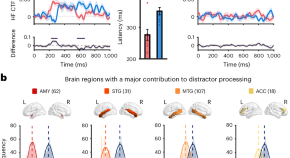
Tracking salient distracting signals within the human temporal lobe via intracranial recordings
Our study successfully tracks salient distracting signals in high-frequency activity obtained from human intracranial recordings. We observed that the temporal lobe has a critical role in reacting to salient distractors, whereas the parietal and frontal cortices seem to be less important than previously thought.

Testing undue incentives
Financial incentives may be offered for risky but potentially life-saving actions, such as donating organs and participation in medical trials. It has been argued that such incentives could distort decision making and lead people to act against their own best interest. However, experimental evidence now suggests that higher financial incentives do not cause harm.
- Linda Thunström
Related Subjects
- Human behaviour
Latest Research and Reviews
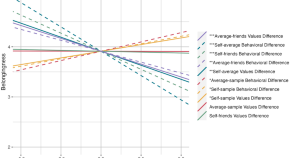
Thinking you're different matters more for belonging than being different
- Sareena Chadha
- Adrienne Wood

Cigarette craving in virtual reality cue exposure in abstainers and relapsed smokers
- Benedikt Schröder
- Agnes Kroczek
- Andreas Mühlberger
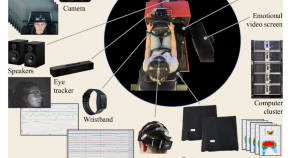
A multimodal driver monitoring benchmark dataset for driver modeling in assisted driving automation
- Khazar Dargahi Nobari
- Torsten Bertram
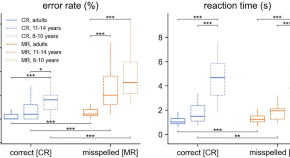
Electrophysiological signatures of spelling sensitivity development from primary school age to adulthood
- Ekaterina Larionova
- Anna Rebreikina
- Olga Martynova
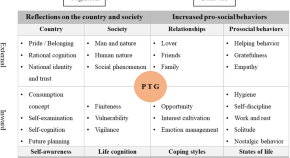
Chinese college students’ post-traumatic growth during the COVID-19: a grounded theory study
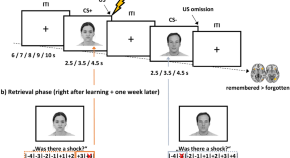
The ventromedial prefrontal cortex in response to threat omission is associated with subsequent explicit safety memory
- Julian Wiemer
- Franziska Leimeister
News and Comment
Using virtual reality to understand mechanisms of therapeutic change.
Establishing causality is crucial to understanding the mechanisms that underlie effective treatments for mental health disorders. Virtual reality environments enable manipulation and control of participants’ attributes in a therapeutic session, which could potentially revolutionize research on mechanisms of change.
- Sigal Zilcha-Mano
- Tal Krasovsky

Exclusion criteria hinder studies of suicide risk
- Ximena Goldberg

Effect sizes and what to make of them
We all care about effect sizes. Yet, traditional ways of evaluating them (P < 0.05 and generic benchmarks) are failing us. We propose two paths forward: setting better, contextualized benchmarks or — more radically — letting go of benchmarks altogether. Both paths point to adjusted expectations, more detailed reporting and slow science.
- Friedrich M. Götz
- Samuel D. Gosling
- Peter J. Rentfrow

Virtual reality for nature experiences
Given the increasing sophistication of virtual reality systems in providing immersive nature experiences, there is the potential for analogous health benefits to those that arise from real nature experiences. We call for research to better understand the human–nature–technology interaction to overcome potential pitfalls of the technology and design tailored virtual experiences that can deliver health outcomes and wellbeing across society.
- Violeta Berdejo-Espinola
- Renee Zahnow
- Richard A. Fuller
Constructive outcomes of repetitive thought
- Aidan J. Flynn
Quick links
- Explore articles by subject
- Guide to authors
- Editorial policies
IResearchNet
Category: Psychology Research Papers
Psychology Research Papers
Forensic Psychology
Forensic Psychology provides students with an in-depth and insightful introduction to the clinical practice of forensic psychology. Incorporating two main themes, scope of practice and therapeutic jurisprudence, the text focuses on empirically supported clinical practice and exposes students to case and statutory laws necessary in the practice of forensic psychology. The text utilizes real world… Continue reading Forensic Psychology
Cognitive Development
“New ideas come into this world somewhat like falling meteors, with a flash and an explosion and perhaps somebody’s castle like roof perforated.” This quotation by Henry David Thoreau aptly captures the burst of insight that occurs when an infant discovers the link between their internal and external worlds; when a preschool child suddenly masters… Continue reading Cognitive Development
Slight lapses in memory, such as forgetting to return a call from a friend or to pick up milk at the grocery store, are normal and to be expected in healthy individuals. Amnesia is not a normal lapse of memory; rather, it is memory loss due to brain damage or psychological trauma. Amnesias caused by… Continue reading Amnesia
Confucianism
Confucianism is an omnibus term for a set of thoughts that compose an ethos, a sentiment, that has been shaping China for many millennia. Confucianism is a group of proposals for proper socioethical ways of life, providing a foundation to the individual’s commitment to sincerity, honesty, and interpersonal harmony. Its impacts are multidimensional in politics,… Continue reading Confucianism
Teen Parents
Teenage parenthood is a social problem in Western culture. This is due, in part, to concerns about the ability of adolescents to meet their own needs for identity exploration and development while also meeting the developmental needs of an infant for stability and commitment. Further, teenage parenthood presents a long-term economic stress to society, as… Continue reading Teen Parents

- Publisher Home
- Editorial Board
- Submit Manuscript
Aims and Scope
The Open Psychology Journal is an Open Access journal, which publishes research articles, reviews/mini-reviews, case reports, perspectives, letters and guest edited single topic issues in all areas of psychology. The journal’s coverage is comprehensive and includes applied psychology; biological psychology; clinical psychology; developmental psychology; experimental psychology (and cognitive neuroscience); educational psychology; mathematical psychology; social psychology; and psychoanalysis.
The Open Psychology Journal , a peer-reviewed journal, is an important and reliable source of current information on developments in the field. Emphasis is placed on publishing quality papers, making them freely available to researchers worldwide.
Recent Articles
Research article, editor's choice, entrepreneurial career probabilities of adolescents.
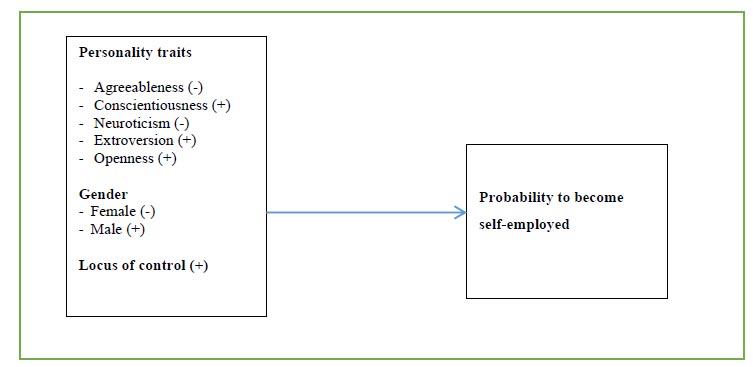
Introduction:
The extent of new enterprise creation is a key driver contributing to economic, social, individual, and cultural values. Given a relatively low rate of Total Early-stage Entrepreneurial Activity (TEA) in Germany, an understanding of the predictors of adolescent entrepreneurial career preferences is critical in developing ways to foster the interest of young people in entrepreneurship. Although the late precursors of the intention to become self-employed are largely understood, only a few studies have investigated which early individual-level factors affect the subjective probability of becoming an entrepreneur.
The objective of the current study is to identify and statistically examine personality factors that affect the subjective probability of adolescents becoming entrepreneurs.
Based on the German Socio-Economic Panel, we employed logistic regression to research the dependence of the variable “probability of becoming self-employed” on independent variables such as gender, locus of control (LoC), and personality traits for German adolescents aged between 16–17 years.
The study reveals a positive influence of the personality traits conscientiousness, extraversion, and LoC on the probability of being self-employed for German adolescents aged between 16–17 years. Agreeableness and neuroticism were found to have no significant effect on the subjective probability of adolescents becoming entrepreneurs, and openness was found to have no significant impact on high likelihood of being self-employed. For adolescents, being female has a significant impact only on a medium probability to be self-employed.
Conclusion:
To the current body of personality models explaining early adolescent entrepreneurial career preferences, we contribute a model which refers to a representative sample of adolescents in German society.
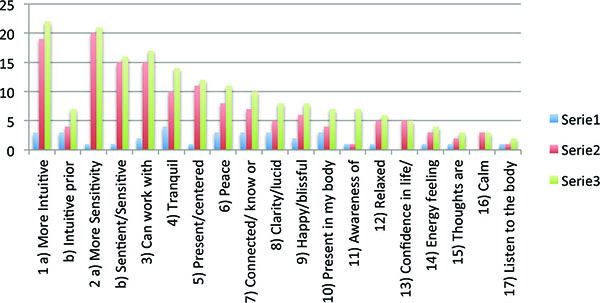
Experiencing Peace Through Heart-Based Meditation on The Self
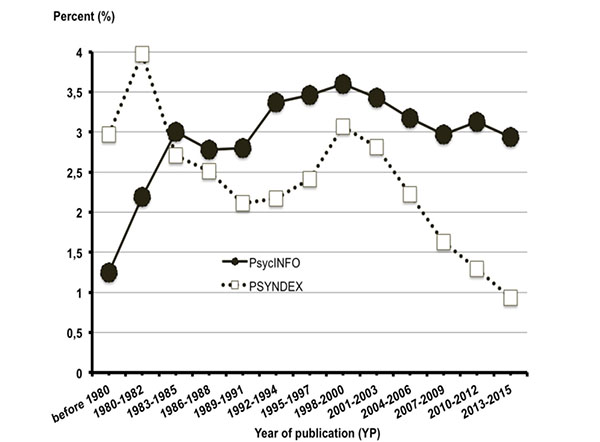
On the Scientific Discourse Practice in Psychology: Professional Comments and Replies in Different Subdisciplines of Psychology up to 2015
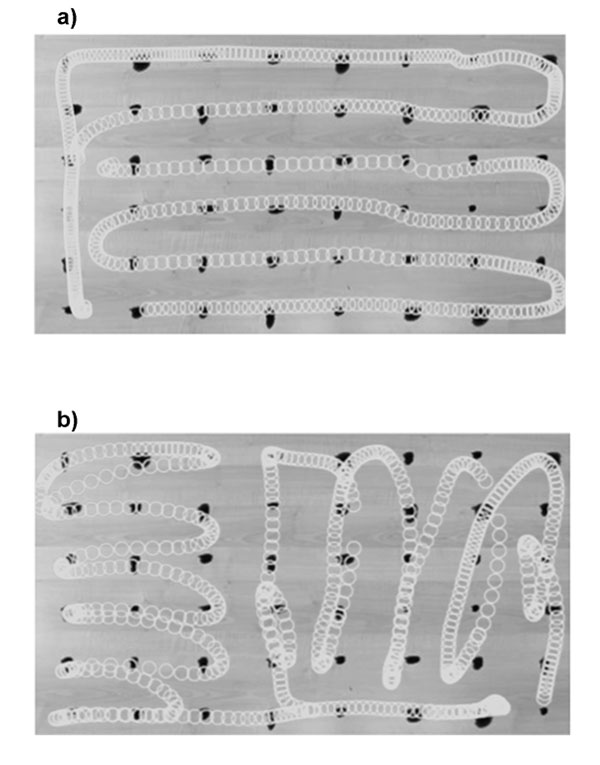
Towards a Dynamic Assessment of Unilateral Spatial Neglect
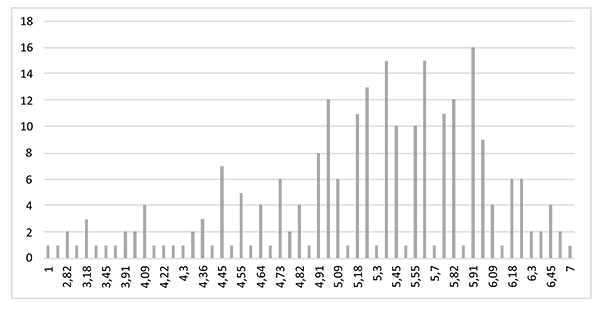
Support for the Forensic DNA Database and Public Safety Concerns: An Exploratory Study
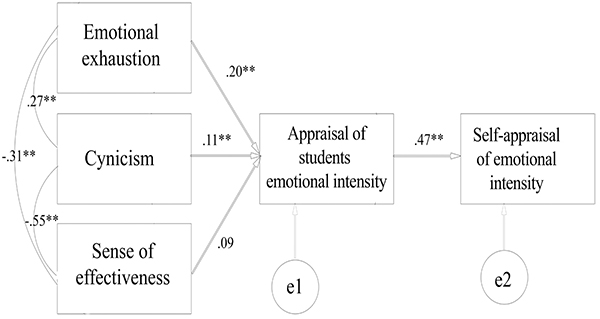
At-Risk Teachers: The Association Between Burnout Levels and Emotional Appraisal Processes
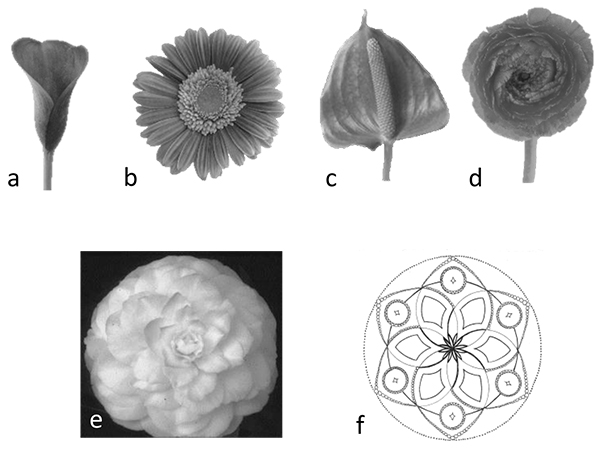
The Meaning of Flowers: A Cultural and Perceptual Exploration of Ornamental Flowers
Quick links, indexing agencies.

Archived In

Call for Papers & Proposals
Scopus citescore, search articles, track your manuscript, published contents, about the editor, about the journal, journal metrics, readership statistics:, total views/downloads: 2,711,774, unique views/downloads: 585,902.

Press Release
Bentham open welcomes sultan idris university of education (upsi) as institutional member.
Bentham Open is pleased to welcome Sultan Idris University of Education (UPSI), Malaysia as Institutional Member. The partnership allows the researchers from the university to publish their research under an Open Access license with specified fee discounts. Bentham Open welcomes institutions and organizations from world over to join as Institutional Member and avail a host of benefits for their researchers.
Sultan Idris University of Education (UPSI) was established in 1922 and was known as the first Teacher Training College of Malaya. It is known as one of the oldest universities in Malaysia. UPSI was later upgraded to a full university institution on 1 May, 1997, an upgrade from their previous college status. Their aim to provide exceptional leadership in the field of education continues until today and has produced quality graduates to act as future educators to students in the primary and secondary level.
Bentham Open publishes a number of peer-reviewed, open access journals. These free-to-view online journals cover all major disciplines of science, medicine, technology and social sciences. Bentham Open provides researchers a platform to rapidly publish their research in a good-quality peer-reviewed journal. All peer-reviewed accepted submissions meeting high research and ethical standards are published with free access to all.
Ministry Of Health, Jordan joins Bentham Open as Institutional Member
Bentham Open is pleased to announce an Institutional Member partnership with the Ministry of Health, Jordan . The partnership provides the opportunity to the researchers, from the university, to publish their research under an Open Access license with specified fee concessions. Bentham Open welcomes institutions and organizations from the world over to join as Institutional Member and avail a host of benefits for their researchers.
The first Ministry of Health in Jordan was established in 1950. The Ministry began its duties in 1951, the beginning of the health development boom in Jordan. The first accomplishment was the establishment of six departments in the districts headed by a physician and under the central administration of the Ministry. The Ministry of Health undertakes all health affairs in the Kingdom and its accredited hospitals include AL-Basheer Hospital, Zarqa Governmental Hospital, University of Jordan Hospital, Prince Hashem Military Hospital and Karak Governmental Hospital.
Bentham Open publishes a number of peer-reviewed, open access journals. These free-to-view online journals cover all major disciplines of science, medicine, technology and social sciences. Bentham Open provides researchers a platform to rapidly publish their research in a good-quality peer-reviewed journal. All peer-reviewed, accepted submissions meeting high research and ethical standards are published with free access to all.
Porto University joins Bentham Open as Institutional Member
Bentham Open is pleased to announce an Institutional Member partnership with the Porto University, Faculty of Dental Medicine (FMDUP) . The partnership provides the opportunity to the researchers, from the university, to publish their research under an Open Access license with specified fee concessions. Bentham Open welcomes institutions and organizations from world over to join as Institutional Member and avail a host of benefits for their researchers.
The Porto University was founded in 1911. Porto University create scientific, cultural and artistic knowledge, higher education training strongly anchored in research, the social and economic valorization of knowledge and active participation in the progress of the communities in which it operates.
Join Our Editorial Board
The Open Psychology Journal is an Open Access online journal, which publishes research articles, reviews, letters, case reports and guest-edited single topic issues in all areas of psychology. Bentham Open ensures speedy peer review process and accepted papers are published within 2 weeks of final acceptance.
The Open Psychology Journal is committed to ensuring high quality of research published. We believe that a dedicated and committed team of editors and reviewers make it possible to ensure the quality of the research papers. The overall standing of a journal is in a way, reflective of the quality of its Editor(s) and Editorial Board and its members.
The Open Psychology Journal is seeking energetic and qualified researchers to join its editorial board team as Editorial Board Members or reviewers.
- Experience in psychology with an academic degree.
- At least 20 publication records of articles and /or books related to the field of psychology or in a specific research field.
- Proficiency in English language.
- Offer advice on journals’ policy and scope.
- Submit or solicit at least one article for the journal annually.
- Contribute and/or solicit Guest Edited thematic issues to the journal in a hot area (at least one thematic issue every two years).
- Peer-review of articles for the journal, which are in the area of expertise (2 to 3 times per year).
If you are interested in becoming our Editorial Board member, please submit the following information to [email protected] . We will respond to your inquiry shortly.
- Email address
- City, State, Country
- Name of your institution
- Department or Division
- Website of institution
- Your title or position
- Your highest degree
- Complete list of publications and h-index
- Interested field(s)
Testimonials
"Open access will revolutionize 21 st century knowledge work and accelerate the diffusion of ideas and evidence that support just in time learning and the evolution of thinking in a number of disciplines."
"It is important that students and researchers from all over the world can have easy access to relevant, high-standard and timely scientific information. This is exactly what Open Access Journals provide and this is the reason why I support this endeavor."
"Publishing research articles is the key for future scientific progress. Open Access publishing is therefore of utmost importance for wider dissemination of information, and will help serving the best interest of the scientific community."
"Open access journals are a novel concept in the medical literature. They offer accessible information to a wide variety of individuals, including physicians, medical students, clinical investigators, and the general public. They are an outstanding source of medical and scientific information."
"Open access journals are extremely useful for graduate students, investigators and all other interested persons to read important scientific articles and subscribe scientific journals. Indeed, the research articles span a wide range of area and of high quality. This is specially a must for researchers belonging to institutions with limited library facility and funding to subscribe scientific journals."
"Open access journals represent a major break-through in publishing. They provide easy access to the latest research on a wide variety of issues. Relevant and timely articles are made available in a fraction of the time taken by more conventional publishers. Articles are of uniformly high quality and written by the world's leading authorities."
"Open access journals have transformed the way scientific data is published and disseminated: particularly, whilst ensuring a high quality standard and transparency in the editorial process, they have increased the access to the scientific literature by those researchers that have limited library support or that are working on small budgets."
"Not only do open access journals greatly improve the access to high quality information for scientists in the developing world, it also provides extra exposure for our papers."
"Open Access 'Chemistry' Journals allow the dissemination of knowledge at your finger tips without paying for the scientific content."
"In principle, all scientific journals should have open access, as should be science itself. Open access journals are very helpful for students, researchers and the general public including people from institutions which do not have library or cannot afford to subscribe scientific journals. The articles are high standard and cover a wide area."
"The widest possible diffusion of information is critical for the advancement of science. In this perspective, open access journals are instrumental in fostering researches and achievements."
"Open access journals are very useful for all scientists as they can have quick information in the different fields of science."
"There are many scientists who can not afford the rather expensive subscriptions to scientific journals. Open access journals offer a good alternative for free access to good quality scientific information."
"Open access journals have become a fundamental tool for students, researchers, patients and the general public. Many people from institutions which do not have library or cannot afford to subscribe scientific journals benefit of them on a daily basis. The articles are among the best and cover most scientific areas."
"These journals provide researchers with a platform for rapid, open access scientific communication. The articles are of high quality and broad scope."
"Open access journals are probably one of the most important contributions to promote and diffuse science worldwide."
"Open access journals make up a new and rather revolutionary way to scientific publication. This option opens several quite interesting possibilities to disseminate openly and freely new knowledge and even to facilitate interpersonal communication among scientists."
"Open access journals are freely available online throughout the world, for you to read, download, copy, distribute, and use. The articles published in the open access journals are high quality and cover a wide range of fields."
"Open Access journals offer an innovative and efficient way of publication for academics and professionals in a wide range of disciplines. The papers published are of high quality after rigorous peer review and they are Indexed in: major international databases. I read Open Access journals to keep abreast of the recent development in my field of study."
"It is a modern trend for publishers to establish open access journals. Researchers, faculty members, and students will be greatly benefited by the new journals of Bentham Science Publishers Ltd. in this category."
- Bipolar Disorder
- Therapy Center
- When To See a Therapist
- Types of Therapy
- Best Online Therapy
- Best Couples Therapy
- Best Family Therapy
- Managing Stress
- Sleep and Dreaming
- Understanding Emotions
- Self-Improvement
- Healthy Relationships
- Student Resources
- Personality Types
- Verywell Mind Insights
- 2023 Verywell Mind 25
- Mental Health in the Classroom
- Editorial Process
- Meet Our Review Board
- Crisis Support
How to Write an Introduction for a Psychology Paper
Kendra Cherry, MS, is a psychosocial rehabilitation specialist, psychology educator, and author of the "Everything Psychology Book."
:max_bytes(150000):strip_icc():format(webp)/IMG_9791-89504ab694d54b66bbd72cb84ffb860e.jpg)
Emily is a board-certified science editor who has worked with top digital publishing brands like Voices for Biodiversity, Study.com, GoodTherapy, Vox, and Verywell.
:max_bytes(150000):strip_icc():format(webp)/Emily-Swaim-1000-0f3197de18f74329aeffb690a177160c.jpg)
- Writing Tips
If you are writing a psychology paper, it is essential to kick things off with a strong introduction. The introduction to a psychology research paper helps your readers understand why the topic is important and what they need to know before they delve deeper.
Your goal in this section is to introduce the topic to the reader, provide an overview of previous research on the topic, and identify your own hypothesis .
At a Glance
Writing a great introduction can be a great foundation for the rest of your psychology paper. To create a strong intro:
- Research your topic
- Outline your paper
- Introduce your topic
- Summarize the previous research
- Present your hypothesis or main argument
Before You Write an Introduction
There are some important steps you need to take before you even begin writing your introduction. To know what to write, you need to collect important background information and create a detailed plan.
Research Your Topic
Search a journal database, PsychInfo or ERIC, to find articles on your subject. Once you have located an article, look at the reference section to locate other studies cited in the article. As you take notes from these articles, be sure to write down where you found the information.
A simple note detailing the author's name, journal, and date of publication can help you keep track of sources and avoid plagiarism.
Create a Detailed Outline
This is often one of the most boring and onerous steps, so students tend to skip outlining and go straight to writing. Creating an outline might seem tedious, but it can be an enormous time-saver down the road and will make the writing process much easier.
Start by looking over the notes you made during the research process and consider how you want to present all of your ideas and research.
Introduce the Topic
Once you are ready to write your introduction, your first task is to provide a brief description of the research question. What is the experiment or study attempting to demonstrate? What phenomena are you studying? Provide a brief history of your topic and explain how it relates to your current research.
As you are introducing your topic, consider what makes it important. Why should it matter to your reader? The goal of your introduction is not only to let your reader know what your paper is about, but also to justify why it is important for them to learn more.
If your paper tackles a controversial subject and is focused on resolving the issue, it is important to summarize both sides of the controversy in a fair and impartial way. Consider how your paper fits in with the relevant research on the topic.
The introduction of a research paper is designed to grab interest. It should present a compelling look at the research that already exists and explain to readers what questions your own paper will address.
Summarize Previous Research
The second task of your introduction is to provide a well-rounded summary of previous research that is relevant to your topic. So, before you begin to write this summary, it is important to research your topic thoroughly.
Finding appropriate sources amid thousands of journal articles can be a daunting task, but there are several steps you can take to simplify your research. If you have completed the initial steps of researching and keeping detailed notes, writing your introduction will be much easier.
It is essential to give the reader a good overview of the historical context of the issue you are writing about, but do not feel like you must provide an exhaustive review of the subject. Focus on hitting the main points, and try to include the most relevant studies.
You might describe previous research findings and then explain how the current study differs or expands upon earlier research.
Provide Your Hypothesis
Once you have summarized the previous research, explain areas where the research is lacking or potentially flawed. What is missing from previous studies on your topic? What research questions have yet to be answered? Your hypothesis should lead to these questions.
At the end of your introduction, offer your hypothesis and describe what you expected to find in your experiment or study.
The introduction should be relatively brief. You want to give your readers an overview of a topic, explain why you are addressing it, and provide your arguments.
Tips for Writing Your Psychology Paper Intro
- Use 3x5 inch note cards to write down notes and sources.
- Look in professional psychology journals for examples of introductions.
- Remember to cite your sources.
- Maintain a working bibliography with all of the sources you might use in your final paper. This will make it much easier to prepare your reference section later on.
- Use a copy of the APA style manual to ensure that your introduction and references are in proper APA format .
What This Means For You
Before you delve into the main body of your paper, you need to give your readers some background and present your main argument in the introduction of you paper. You can do this by first explaining what your topic is about, summarizing past research, and then providing your thesis.
Armağan A. How to write an introduction section of a scientific article ? Turk J Urol . 2013;39(Suppl 1):8-9. doi:10.5152/tud.2013.046
Fried T, Foltz C, Lendner M, Vaccaro AR. How to write an effective introduction . Clin Spine Surg . 2019;32(3):111-112. doi:10.1097/BSD.0000000000000714
Jawaid SA, Jawaid M. How to write introduction and discussion . Saudi J Anaesth . 2019;13(Suppl 1):S18-S19. doi:10.4103/sja.SJA_584_18
American Psychological Association. Information Recommended for Inclusion in Manuscripts That Report New Data Collections Regardless of Research Design . Published 2020.
By Kendra Cherry, MSEd Kendra Cherry, MS, is a psychosocial rehabilitation specialist, psychology educator, and author of the "Everything Psychology Book."
Purdue Online Writing Lab Purdue OWL® College of Liberal Arts
APA Sample Paper: Experimental Psychology

Welcome to the Purdue OWL
This page is brought to you by the OWL at Purdue University. When printing this page, you must include the entire legal notice.
Copyright ©1995-2018 by The Writing Lab & The OWL at Purdue and Purdue University. All rights reserved. This material may not be published, reproduced, broadcast, rewritten, or redistributed without permission. Use of this site constitutes acceptance of our terms and conditions of fair use.
Media File: APA Sample Paper: Experimental Psychology
This resource is enhanced by an Acrobat PDF file. Download the free Acrobat Reader
Join thousands of product people at Insight Out Conf on April 11. Register free.
Insights hub solutions
Analyze data
Uncover deep customer insights with fast, powerful features, store insights, curate and manage insights in one searchable platform, scale research, unlock the potential of customer insights at enterprise scale.
Featured reads

Inspiration
Three things to look forward to at Insight Out
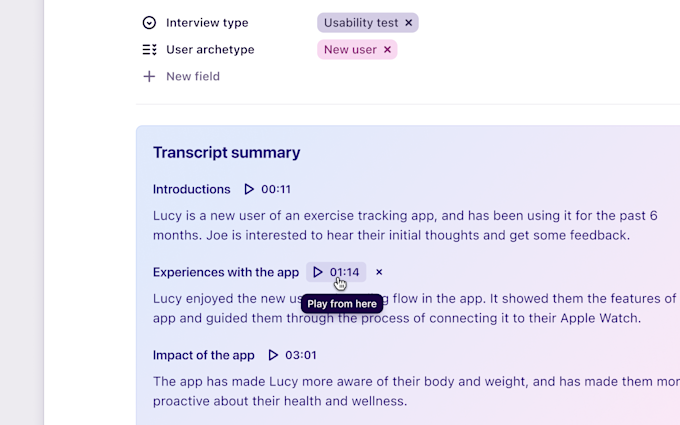
Tips and tricks
Make magic with your customer data in Dovetail

Four ways Dovetail helps Product Managers master continuous product discovery
Events and videos
© Dovetail Research Pty. Ltd.
61 intriguing psychology research topics to explore
Last updated
11 January 2024
Reviewed by
Brittany Ferri, PhD, OTR/L
Psychology is an incredibly diverse, critical, and ever-changing area of study in the medical and health industries. Because of this, it’s a common area of study for students and healthcare professionals.
We’re walking you through picking the perfect topic for your upcoming paper or study. Keep reading for plenty of example topics to pique your interest and curiosity.
- How to choose a psychology research topic
Exploring a psychology-based topic for your research project? You need to pick a specific area of interest to collect compelling data.
Use these tips to help you narrow down which psychology topics to research:
Focus on a particular area of psychology
The most effective psychological research focuses on a smaller, niche concept or disorder within the scope of a study.
Psychology is a broad and fascinating area of science, including everything from diagnosed mental health disorders to sports performance mindset assessments.
This gives you plenty of different avenues to explore. Having a hard time choosing? Check out our list of 61 ideas further down in this article to get started.
Read the latest clinical studies
Once you’ve picked a more niche topic to explore, you need to do your due diligence and explore other research projects on the same topic.
This practice will help you learn more about your chosen topic, ask more specific questions, and avoid covering existing projects.
For the best results, we recommend creating a research folder of associated published papers to reference throughout your project. This makes it much easier to cite direct references and find inspiration down the line.

Find a topic you enjoy and ask questions
Once you’ve spent time researching and collecting references for your study, you finally get to explore.
Whether this research project is for work, school, or just for fun, having a passion for your research will make the project much more enjoyable. (Trust us, there will be times when that is the only thing that keeps you going.)
Now you’ve decided on the topic, ask more nuanced questions you might want to explore.
If you can, pick the direction that interests you the most to make the research process much more enjoyable.
- 61 psychology topics to research in 2024
Need some extra help starting your psychology research project on the right foot? Explore our list of 61 cutting-edge, in-demand psychology research topics to use as a starting point for your research journey.
- Psychology research topics for university students
As a university student, it can be hard to pick a research topic that fits the scope of your classes and is still compelling and unique.
Here are a few exciting topics we recommend exploring for your next assigned research project:
Mental health in post-secondary students
Seeking post-secondary education is a stressful and overwhelming experience for most students, making this topic a great choice to explore for your in-class research paper.
Examples of post-secondary mental health research topics include:
Student mental health status during exam season
Mental health disorder prevalence based on study major
The impact of chronic school stress on overall quality of life
The impacts of cyberbullying
Cyberbullying can occur at all ages, starting as early as elementary school and carrying through into professional workplaces.
Examples of cyberbullying-based research topics you can study include:
The impact of cyberbullying on self-esteem
Common reasons people engage in cyberbullying
Cyberbullying themes and commonly used terms
Cyberbullying habits in children vs. adults
The long-term effects of cyberbullying
- Clinical psychology research topics
If you’re looking to take a more clinical approach to your next project, here are a few topics that involve direct patient assessment for you to consider:
Chronic pain and mental health
Living with chronic pain dramatically impacts every aspect of a person’s life, including their mental and emotional health.
Here are a few examples of in-demand pain-related psychology research topics:
The connection between diabetic neuropathy and depression
Neurological pain and its connection to mental health disorders
Efficacy of meditation and mindfulness for pain management
The long-term effects of insomnia
Insomnia is where you have difficulty falling or staying asleep. It’s a common health concern that impacts millions of people worldwide.
This is an excellent topic because insomnia can have a variety of causes, offering many research possibilities.
Here are a few compelling psychology research topics about insomnia you could investigate:
The prevalence of insomnia based on age, gender, and ethnicity
Insomnia and its impact on workplace productivity
The connection between insomnia and mental health disorders
Efficacy and use of melatonin supplements for insomnia
The risks and benefits of prescription insomnia medications
Lifestyle options for managing insomnia symptoms
The efficacy of mental health treatment options
Management and treatment of mental health conditions is an ever-changing area of study. If you can witness or participate in mental health therapies, this can make a great research project.
Examples of mental health treatment-related psychology research topics include:
The efficacy of cognitive behavioral therapy (CBT) for patients with severe anxiety
The benefits and drawbacks of group vs. individual therapy sessions
Music therapy for mental health disorders
Electroconvulsive therapy (ECT) for patients with depression
- Controversial psychology research paper topics
If you are looking to explore a more cutting-edge or modern psychology topic, you can delve into a variety of controversial and topical options:
The impact of social media and digital platforms
Ever since access to internet forums and video games became more commonplace, there’s been growing concern about the impact these digital platforms have on mental health.
Examples of social media and video game-related psychology research topics include:
The effect of edited images on self-confidence
How social media platforms impact social behavior
Video games and their impact on teenage anger and violence
Digital communication and the rapid spread of misinformation
The development of digital friendships
Psychotropic medications for mental health
In recent years, the interest in using psychoactive medications to treat and manage health conditions has increased despite their inherently controversial nature.
Examples of psychotropic medication-related research topics include:
The risks and benefits of using psilocybin mushrooms for managing anxiety
The impact of marijuana on early-onset psychosis
Childhood marijuana use and related prevalence of mental health conditions
Ketamine and its use for complex PTSD (C-PTSD) symptom management
The effect of long-term psychedelic use and mental health conditions
- Mental health disorder research topics
As one of the most popular subsections of psychology, studying mental health disorders and how they impact quality of life is an essential and impactful area of research.
While studies in these areas are common, there’s always room for additional exploration, including the following hot-button topics:
Anxiety and depression disorders
Anxiety and depression are well-known and heavily researched mental health disorders.
Despite this, we still don’t know many things about these conditions, making them great candidates for psychology research projects:
Social anxiety and its connection to chronic loneliness
C-PTSD symptoms and causes
The development of phobias
Obsessive-compulsive disorder (OCD) behaviors and symptoms
Depression triggers and causes
Self-care tools and resources for depression
The prevalence of anxiety and depression in particular age groups or geographic areas
Bipolar disorder
Bipolar disorder is a complex and multi-faceted area of psychology research.
Use your research skills to learn more about this condition and its impact by choosing any of the following topics:
Early signs of bipolar disorder
The incidence of bipolar disorder in young adults
The efficacy of existing bipolar treatment options
Bipolar medication side effects
Cognitive behavioral therapy for people with bipolar
Schizoaffective disorder
Schizoaffective disorder is often stigmatized, and less common mental health disorders are a hotbed for new and exciting research.
Here are a few examples of interesting research topics related to this mental health disorder:
The prevalence of schizoaffective disorder by certain age groups or geographic locations
Risk factors for developing schizoaffective disorder
The prevalence and content of auditory and visual hallucinations
Alternative therapies for schizoaffective disorder
- Societal and systematic psychology research topics
Modern society’s impact is deeply enmeshed in our mental and emotional health on a personal and community level.
Here are a few examples of societal and systemic psychology research topics to explore in more detail:
Access to mental health services
While mental health awareness has risen over the past few decades, access to quality mental health treatment and resources is still not equitable.
This can significantly impact the severity of a person’s mental health symptoms, which can result in worse health outcomes if left untreated.
Explore this crucial issue and provide information about the need for improved mental health resource access by studying any of the following topics:
Rural vs. urban access to mental health resources
Access to crisis lines by location
Wait times for emergency mental health services
Inequities in mental health access based on income and location
Insurance coverage for mental health services
Systemic racism and mental health
Societal systems and the prevalence of systemic racism heavily impact every aspect of a person’s overall health.
Researching these topics draws attention to existing problems and contributes valuable insights into ways to improve access to care moving forward.
Examples of systemic racism-related psychology research topics include:
Access to mental health resources based on race
The prevalence of BIPOC mental health therapists in a chosen area
The impact of systemic racism on mental health and self-worth
Racism training for mental health workers
The prevalence of mental health disorders in discriminated groups
LGBTQIA+ mental health concerns
Research about LGBTQIA+ people and their mental health needs is a unique area of study to explore for your next research project. It’s a commonly overlooked and underserved community.
Examples of LGBTQIA+ psychology research topics to consider include:
Mental health supports for queer teens and children
The impact of queer safe spaces on mental health
The prevalence of mental health disorders in the LGBTQIA+ community
The benefits of queer mentorship and found family
Substance misuse in LQBTQIA+ youth and adults
- Collect data and identify trends with Dovetail
Psychology research is an exciting and competitive study area, making it the perfect choice for projects or papers.
Take the headache out of analyzing your data and instantly access the insights you need to complete your next psychology research project by teaming up with Dovetail today.
Get started today
Go from raw data to valuable insights with a flexible research platform
Editor’s picks
Last updated: 21 December 2023
Last updated: 16 December 2023
Last updated: 17 February 2024
Last updated: 19 November 2023
Last updated: 5 March 2024
Last updated: 15 February 2024
Last updated: 11 March 2024
Last updated: 12 December 2023
Last updated: 6 March 2024
Last updated: 10 April 2023
Last updated: 20 December 2023
Latest articles
Related topics, log in or sign up.
Get started for free
Psychology Research Paper

This sample psychology research paper features: 6000 words (approx. 20 pages), an outline, and a bibliography with 32 sources. Browse other research paper examples for more inspiration. If you need a thorough research paper written according to all the academic standards, you can always turn to our experienced writers for help. This is how your paper can get an A! Feel free to contact our writing service for professional assistance. We offer high-quality assignments for reasonable rates.
History of Psychology
Every day, psychologists make history. It can be in an act as small as sending an e-mail or as large as winning a Nobel Prize. What remains of these acts and the contexts in which they occur are the data of history. When transformed by historians of psychology to produce narrative, these data represent our best attempts to make meaning of our science and profession.
Academic Writing, Editing, Proofreading, And Problem Solving Services
Get 10% off with 24start discount code, more psychology research papers:.
- Aggression Research Paper
- Artificial Intelligence Research Paper
- Discrimination Research Paper
- Early Childhood Education Research Paper
- Environmental Psychology Research Paper
- Learning Disabilities Research Paper
- Social Cognition Research Paper
The meaning that is derived from the data of history is most often made available to students of psychology through a course in the history of psychology. For a variety of reasons, the history of psychology has maintained a strong presence in the psychology curriculum at both the undergraduate and graduate levels for as long as there has been a psychology curriculum in America (Fuchs & Viney, 2002; Hilgard, Leary, & McGuire, 1991). As a result, most students will have some exposure to the subject matter and some sense of its importance.
Why are psychologists so interested in their own history? In trying to answer this question, consider the following quotations from two eminent British historians. One, Robin Collingwood (1946), wrote that the “proper object of historical study.. .is the human mind, or more properly the activities of the human mind” (p. 215). And the other, Edward H. Carr (1961), proposed that “the historian is not really interested in the unique, but what is general in the unique” and that “the study of history is a study of causes.. .the historian.. .continuously asks the question: Why?” (pp. 80, 113). Thus, according to these historians, to study history is to study the human mind, to be able to generalize beyond the characteristics of a single individual or single event to other individuals and other events, and to be able to answer the “why” of human behavior in terms of motivation, personality, past experience, expectations, and so forth. Historians are not satisfied, for example, with a mere description of the events of May 4, 1970, in which national guard troops killed four unarmed students on a college campus in Ohio. Description is useful, but it is not the scholarly end product that is sought. By itself, description is unlikely to answer the questions that historians want to answer. They want to understand an event, like the shootings at Kent State University, so completely that they can explain why it happened.
Collingwood (1946) has described history as “the science of human nature” (p. 206). In defining history in that way, Collingwood has usurped psychology’s definition for itself. One can certainly argue about the scientific nature of history and thus his use of the term science in his definition. Whereas historians do not do experimental work, they are engaged in empirical work, and they approach their questions in much the same way that psychologists do, by generating hypotheses and then seeking evidence that will confirm or disconfirm those hypotheses. Thus the intellectual pursuits of the historian and the psychologist are not really very different. And so as psychologists or students of psychology, we are not moving very far from our own field of interest when we study the history of psychology.
Historians of psychology seek to understand the development of the discipline by examining the confluence of people, places, and events within larger social, economic, and political contexts. Over the last forty years the history of psychology has become a recognized area of research and scholarship in psychology. Improvements in the tools, methods, and training of historians of psychology have created a substantial body of research that contributes to conversations about our shared past, the meaning of our present divergence, and the promise of our future. In this research-paper you will learn about the theory and practice of research on the history of psychology.
Historiography refers to the philosophy and methods of doing history. Psychology is certainly guided by underlying philosophies and a diversity of research methods. A behaviorist, for example, has certain assumptions about the influence of previous experience, in terms of a history of punishment and reinforcement, on current behavior. And the methods of study take those assumptions into account in the design and conduct of experiments. A psychoanalytic psychologist, on the other hand, has a very different philosophy and methodology in investigating the questions of interest, for example, believing in the influence of unconscious motives and using techniques such as free association or analysis of latent dream content to understand those motives. Historical research is guided in the same way. It will help you understand history by knowing something about its philosophy and methods as well.
The historical point of view is highly compatible with our notions of our science. Psychologists tend to view individuals in developmental terms, and historians of psychology extend this point of view to encompass the developmental life of the discipline. Like any area of inquiry in psychology, historians of psychology modify their theories, principles, and practices with the accumulation of knowledge, the passage of time, and available technology. One simply needs to compare E. G. Boring’s epic 1929 tome, A History of Experimental Psychology, with Duane and Sydney Ellen Schultz’s 2004 text, A History of Modern Psychology, to see the difference that 75 years can make.
Approaches to history have changed dramatically over the last 75 years. Indeed much of the early research and scholarship in the history of psychology was ceremonial and celebratory. Most often it was not written by historians. It was, and in some circles remains, a reflexive view of history—great people cause great change. Such a view is naive and simplistic. Psychological theories, research practices, and applications are all bound in a context, and it is this dynamic and fluid model that is the trend in historical research today. Just as inferential statistics have advanced from simple regression analysis to structural equation modeling, so too has historical research embraced a notion of multiple determinants and estimates of their relative impact on historical construction. In 1989 historian of psychology Laurel Furumoto christened this “the new history,” a signifier denoting that historic research should strive to be more contextual and less internal.
Postmodern, deconstructionist, and social constructionist perspectives all share an emphasis on context, and have influenced historical research in psychology. The postmodern approach embraces a more critical and questioning attitude toward the enterprise of science (Anderson, 1998). The rise of science studies has led to what some have dubbed the “science wars” and to contentious arguments between those who see science as an honest attempt at objective and dispassionate fact-finding and those who see science (psychological and otherwise) as a political exercise subject to disorder, bias, control, and authority mongering. It is an issue that is present in today’s history of psychology (for examples and discussions see Popplestone, 2004; Zammito, 2004).
Perhaps the largest growth in scholarship on the history of psychology has been in the area of intellectual history. As mentioned earlier, the construction of narrative in these works tends to eschew the older, more ceremonial, and internal histories in favor of a point of view that is more external and contextual. Rather than merely providing a combination of dates and achievements, modern historical scholarship in psychology tends to illuminate. The value of this point of view is in its contributions to our ongoing discussions of the meanings and directions of our field. The ever-expanding universe that psychology occupies and the ongoing debates of the unity of psychology are sufficient to warrant consideration and discussion of how our science and practice have evolved and developed. Historical analysis offers insight into personal, professional, and situational variables that impact and influence the field.
There is also a growing interest in what can be termed the material culture of psychology. The objects and artifacts that occupy psychological laboratories and aid our assessment of mind and behavior are becoming objects of study in their own right (Robinson, 2001; Sturm & Ash, 2005). For example, we continue to study reaction time and memory but we no longer use Hipp chronoscopes or mechanical memory drums. Changes in technology bring changes in methodologies and a host of other variables that are of interest to the historian of psychology.
Another area of increased interest and attention is the impact that racism and discrimination have had on the field. Traditionally underrepresented groups in psychology have often been made invisible by the historical record, but recent scholarship seeks to illuminate the people, places, and practices that have been part of both the problem and the solution to some of the 20th century’s most vexing questions on race, gender, and religion (for examples see Philogène, 2004; Winston, 2004).
Psychologists typically study contemporary events (behaviors and mental processes), whereas historians study events of the distant past. Both might be interested in the same behavior, but the time frame and the methods are usually distinct. Psychologists are interested in marriage, for example, and they might study marriage using surveys, ex post facto methods, or quasi-experimental designs using a sample of married couples (or perhaps divorced couples). Historians, on the other hand, would be likely to look at marriage, for example, as an institution in Victorian England, and they would be unable to use any of the methods listed previously as part of the arsenal of the psychologist. The questions on marriage that would interest psychologists and historians might be similar—how are mates selected in marriage, at what age do people marry, what roles do wives and husbands play in these marriages, what causes marriages to end? But again, the methods of research and the time frame for the events would be different.
History, then, is the branch of knowledge that attempts to analyze and explain events of the past. The explanatory product is a narrative of those events, a story. Central to telling any historical story is the accumulation of facts. We typically think of facts as some kind of demonstrable truth, some real event whose occurrence cannot be disputed. Yet facts are more elusive, as evidenced in the typical dictionary definition, which notes that a fact is information that is “presented” as objectively real. Historians present as fact, for example, that an atomic bomb was dropped on the Japanese city of Hiroshima on August 6, 1945. Because of detailed records of that event, as well as many eyewitness accounts, that fact seems indisputable; however, there are other kinds of facts.
In addition to the date of the bombing of Hiroshima, historians have also presented a number of facts relevant to the decision made by the United States government to drop that bomb. Not surprisingly, those facts are more debatable. Thus facts differ in terms of their certainty. Sometimes that is because evidence is incomplete and much inference has to be made, sometimes it is because evidence is contradictory, and sometimes it is because of bias introduced in the observation or in the interpretation of these events. Flawed though they may be, facts are the basis of history. It is the job of the historian to uncover these items of the past and to piece them together in an account that is as accurate as can be constructed.
In contemporary historiography, the researcher must always be alert to bias in the selection and interpretation of facts. Objectivity is a critical goal for the historian. Carr (1961) has argued that objectivity is indeed only a dream: “The emphasis on the role of the historian in the making of history tends, if pressed to its logical conclusion, to rule out any objective history at all: history is what the historian makes” (p. 29).
Like psychologists, historians are human too, and they bring to their task a bundle of prejudices, preconceptions, penchants, predispositions, premises, and predilections. Such baggage does not mean that they abandon their hope for objectivity, nor does it mean that their histories are hopelessly flawed. Good historians know their biases.
They use their understanding of them to search for evidence in places where they might not otherwise look or to ask questions that they would not ordinarily ask. When this searching and questioning causes them to confront facts contrary to their own views, they must deal with those facts as they would with facts that are more consistent with their biases.
Bias in history begins at the beginning: “The historian displays a bias through the mere choice of a subject…” (Gilderhus, 1992, p. 80). There are an infinite number of historical subjects to pursue. The historian selects from among those, often selecting one of paramount personal interest. The search within that subject begins with a question or questions that the historian hopes to answer, and likely the historian starts with some definite ideas about the answers to those questions.
Bias is evident too in the data of history. It can occur in primary source material—for example, census records or other government documents—even though such sources are often regarded as quite accurate. Yet such sources are inherently biased by the philosophies underlying the construction of the instruments themselves and the ways in which those instruments are used. Secondary sources too are flawed. Their errors occur in transcription, translation, selection, and interpretation.
Oral histories are subject to the biases of the interviewer and the interviewee. Some questions are asked, while others are not. Some are answered, and others are avoided. And memories of events long past are often unreliable. Manuscript collections, the substance of modern archives, are selective and incomplete. They contain the documents that someone decided were worth saving, and they are devoid of those documents that were discarded or lost for a host of reasons, perhaps known only to the discarder.
After they have selected a topic of study and gathered the facts, historians must assemble them into a narrative that can also be subject to biases. Leahey (1986) reviews some of the pitfalls that modern historians of science want to avoid. These include Whig history, presentism, internalist history, and Great Man theories. Whig history refers to historical narrative that views history as a steady movement toward progress in an orderly fashion. Presentism is the tendency to view the past in terms of current values and beliefs. Internalist history focuses solely on developments within a field and fails to acknowledge the larger social, political, and economic contexts in which events and individual actions unfold. Great Man theories credit single, unique individuals (most often white males) as makers of history without regard for the impact that the spirit of the times (often referred to as the zeitgeist) has on the achievements of individuals. Avoiding these errors of interpretation calls for a different approach, which Stocking (1965) has labeled “historicism”: an understanding of the past in its own context and for its own sake. Such an approach requires historians to immerse themselves in the context of the times they are studying.
These are just some of the hurdles that the historian faces in striving for objectivity. They are not described here to suggest that the historian’s task is a hopeless one; instead, they are meant to show the forces against which historians must struggle in attempts at accuracy and objectivity. Carr (1961) has characterized the striving for this ideal as follows:
When we call a historian objective, we mean, I think, two things. First of all, we mean that he has the capacity to rise above the limited vision of his own situation in society and in history… .Secondly, we mean that he has the capacity to project his vision into the future in such a way as to give him a more profound and lasting insight into the past than can be attained by those historians whose outlook is entirely bounded by their own immediate situation. (p. 163)
In summary, history is a product of selection and interpretation. Knowing that helps us understand why books are usually titled “A History…” and not “The History….” There are many histories of psychology, and it would be surprising to find any historians so arrogant as to presume that their individual narratives constituted “The History of Psychology.”
History research is often like detective work: the search for one piece of evidence leads to the search for another and another. One has to follow all leads, some of which produce no useful information. When all of the leads have been exhausted, then you can analyze the facts to see if they are sufficient for telling the story. The leads or the data of history are most often found in original source material. The published record provides access to original source material through monographs and serials that are widely circulated and available in most academic libraries (including reference works such as indexes, encyclopedias, and hand-books). Hard-to-find and out-of-print material (newspapers, newsletters) are now much more easily available thanks to the proliferation of electronic resources. Too often valuable sources of information (obituaries, departmental histories and records, and oral histories) that are vital to maintaining the historical record are not always catalogued and indexed in ways that make them readily available and visible. The most important of all sources of data are archival repositories. Within such repositories one can find records of individuals (referred to as manuscript collections) and organizations (termed archival collections). Manuscript collections preserve and provide access to unique documents such as correspondence, lab notes, drafts of manuscripts, grant proposals, and case records. Archival collections of organizations contain materials such as membership records, minutes of meetings, convention programs, and the like. Archival repositories provide, in essence, the “inside story,” free of editorial revision or censure and marked by the currency of time as opposed to suffering the losses and distortion of later recall. In much the same way, still images, film footage, and artifacts such as apparatus and instrumentation aid in the process of historical discovery.
There are literally thousands of collections of letters of individuals, most of them famous, but some not. And in those historically significant collections are millions of stories waiting to be told. Michael Hill (1993) has described the joys of archival research in this way:
Archival work appears bookish and commonplace to the uninitiated, but this mundane simplicity is deceptive. It bears repeating that events and materials in archives are not always what they seem on the surface. There are perpetual surprises, intrigues, and apprehensions. Suffice it to say that it is a rare treat to visit an archive, to hold in one’s hand the priceless and irreplaceable documents of our unfolding human drama. Each new box of archival material presents opportunities for discovery as well as obligations to treat the subjects of your… research with candor, theoretical sophistication, and a sense of fair play. Each archival visit is a journey into an unknown realm that rewards its visitors with challenging puzzles and unexpected revelations. (pp. 6-7)
“Surprise, intrigue, apprehension, puzzles, and discovery”—those are characteristics of detective work, and historical research is very much about detective work.
The papers of important psychologists are spread among archives and libraries all over the world. In the United States you will find the papers of William James and B. F. Skinner in the collections at Harvard University. The papers of Hugo Munsterberg, a pioneer in the application of psychology to business, can be found at the Boston Public Library. The papers of Mary Whiton Calkins and Christine Ladd-Franklin, important early contributors to experimental psychology, can be found at Wellesley College and at Vassar College and Columbia University, respectively. The Library of Congress includes the papers of James McKeen Cattell and Kenneth B. Clark. Cattell was one of the founders of American psychology and a leader among American scientists in general, and Clark, an African American psychologist, earned fame when his research on self-esteem in black children was cited prominently in the U.S. Supreme Court decision that made school segregation illegal (Brown v. Board of Education, 1954).
The single largest collection of archival materials on psychology anywhere in the world can be found at the Archives of the History of American Psychology (AHAP) at the University of Akron in Akron, Ohio. Founded by psychologists John A. Popplestone and Marion White McPherson in 1965, its purpose is to collect and preserve the historical record of psychology in America (Baker, 2004). Central to this mission is the preservation of personal papers, artifacts, and media that tell the story of psychology in America. In archival terms, “papers” refers to one-of-a-kind (unique) items. Papers can include such things as correspondence (both personal and professional), lecture notes, diaries, and lab journals. Recently named a Smithsonian Affiliate, the AHAP houses more than 1,000 objects and artifacts that offer unique insights into the science and practice of psychology. Instruments from the brass-and-glass era of the late 19th century share space alongside such significant 20th century objects as the simulated shock generator used by Stanley Milgram in his famous studies of obedience and conformity, the flags of the Eagles and Rattlers of the Robbers Cave experiment by Muzafir and Carolyn Sherif, and the props that supported Phillip Zimbardo’s well-known Stanford University prison studies.
Currently, the AHAP houses the personal papers of over 700 psychologists. There are papers of those representing experimental psychology (Leo and Dorothea Hurvich, Kenneth Spence, Ward Halstead, Mary Ainsworth, Frank Beach, Knight Dunlap, Dorothy Rethlingshafer, and Hans Lukas-Tuber), professional psychology (David Shakow, Edgar Doll, Leta Hollingworth, Herbert Freudenberger, Sidney Pressey, Joseph Zubin, Erika Fromm, Jack Bardon, Robert Waldrop, Marie Crissey, and Morris Viteles), and just about everything in between. Also included are the records of more than 50 psychological organizations, including the American Group Psychotherapy Association, the Association for Women in Psychology, Psi Chi, Psi Beta, the Association for Humanistic Psychology, the International Council of Psychologists, and the Psychonomic Society. State and regional association records that can be found at the AHAP include those of the Midwestern Psychological Association, the Ohio Psychological Association, and the Western Psychological Association. The test collection includes more than 8,000 tests and records. There are more than 15,000 photographs and 6,000 reels of film, including home movies of Freud, footage of Pavlov’s research institute, and research film from Arnold Gesell and the Yale Child Study Center. All of these materials serve as trace elements of people, places, and events to which we no longer have access. These archival elements are less fallible than human memory, and if properly preserved, are available to all for review and interpretation. Because an in-person visit to the Archives of the History of American Psychology is not always possible, the AHAP is seeking to make more of its collection available online ( https://www.uakron.edu/ahap ). Indeed, with the advent of the information age, material that was once available only by visitation to an archival repository can now be scanned, digitized, and otherwise rendered into an electronic format. From the diaries and correspondence of women during the civil war to archival collections of animation movies, the digital movement is revolutionizing access to original source material. More information on electronic resources in the history of psychology can be found in the annotated bibliography at the end of this research-paper.
All archives have a set of finding aids to help the researcher locate relevant materials. Some finding aids are more comprehensive than others. Finding aids are organized around a defined set of characteristics that typically include the following:
- Collection dates (date range of the material)
- Size of collection (expressed in linear feet)
- Provenance (place of origin of a collection, previous ownership)
- Access (if any part of the collection is restricted)
- Finding aid preparer name and date of preparation
- Biographical/historical note (a short, succinct note about the collection’s creator)
- Scope and content note (general description and highlights of the collection)
- Series descriptions (headings used to organize records of a similar nature)
- Inventory (description and location of contents of a collection)
Even if an on-site review of the contents of a collection is not possible, reviewing finding aids can still be useful because of the wealth of information they provide.
Applications
In the mid-1960s, a critical mass of sorts was achieved for those interested in teaching, research, and scholarship in the history of psychology. Within the span of a few years, two major organizations appeared: Cheiron: The International Society for the History of the Social and Behavioral Sciences, and Division 26 (Society for the History of Psychology) of the American Psychological Association (APA). Both sponsor annual meetings, and both are affiliated with scholarly journals (Cheiron is represented by the Journal of the History of the Behavioral Sciences and the Society for the History of Psychology by History of Psychology) that provide an outlet for original research. Two doctoral training programs in the history of psychology exist in North America. One is at York University in Toronto, Ontario, Canada, and the other is at the University of New Hampshire.
For most students in psychology, the closest encounter with historical research comes in the form of a project or paper as part of a requirement for a class on the history of psychology. Using the types of resources that we have described in this research-paper, it should be possible to construct a narrative on any number of topical issues in psychology.
For example, the ascendancy of professional psychology with its concomitant focus on mental health is a topic of interest to historians of psychology and of considerable importance to many students who wish to pursue graduate training in professional psychology. Using archival materials, original published material, secondary sources, and government documents, a brief example of a historical narrative is provided.
World War II and the Rise of Professional Psychology
America’s entrance into World War II greatly expanded the services that American psychologists offered, especially in the area of mental health. Rates of psychiatric illness among recruits were surprisingly high, the majority of discharges from service were for psychiatric reasons, and psychiatric casualties occupied over half of all beds in Veterans Administration hospitals. Not only was this cause for concern among the military, it also alerted federal authorities to the issue among the general population. At the time, the available supply of trained personnel met a fraction of the need. In a response that was fast and sweeping, the federal government passed the National Mental Health Act of 1946, legislation that has been a major determinant in the growth of the mental health profession in America (Pickren & Schneider, 2004). The purpose of the act was clear:
The improvement of the mental health of the people of the United States through the conducting of researches, investigations, experiments, and demonstrations relating to the cause, diagnosis, and treatment of psychiatric disorders; assisting and fostering such research activities by public and private agencies, and promoting the coordination of all such researches and activities and the useful application of their results; training personnel in matters relating to mental health; and developing, and assisting States in the use of the most effective methods of prevention, diagnosis, and treatment of psychiatric disorders. (Public Law 487, 1946, p. 421)
The act provided for a massive program of federal assistance to address research, training, and service in the identification, treatment, and prevention of mental illness.
It created the National Institute of Mental Health (NIMH) and provided broad support to psychiatry, psychiatric social work, psychiatric nursing, and psychology for the training of mental health professionals (Rubens tein, 1975). Through the joint efforts of the United States Public Health Service and the Veterans Administration, funds were made available to psychology departments willing to train professional psychologists. Never before had such large sums of money been available to academic psychology. The grants and stipends available from the federal government allowed universities to hire clinical faculty to teach graduate students, whose education and training was often supported by generous stipends. It was these funds that subsidized the Boulder Conference on Graduate Education in Clinical Psychology in 1949 (Baker & Benjamin, 2000).
The chief architect of the Boulder model was David Shakow (1901-1981). At the time, there was no other person in American psychology who had more responsibility and influence in defining standards of training for clinical psychologists. In 1947, Shakow crafted a report on the training of doctoral students in clinical psychology that became the working document for the Boulder Conference of 1949 (APA, 1947; Benjamin & Baker, 2004; Felix, 1947).
By the 1950s, professional psychologists achieved identities that served their members, served their various publics, attracted students and faculty, and ensured survival by maintaining the mechanisms necessary for professional accreditation and later for certification and licensure. In the free-market economy, many trained for public service have found greener pastures in private practice.
The training model inaugurated by the NIMH in 1949 has continued unabated for five decades, planned and supported largely through the auspices of the American Psychological Association. The exigencies that called for the creation of a competent mental health work force have changed, yet the professional psychologist engineered at mid-century has endured, as has the uneasy alliance between science and practice.
This brief historical analysis shows how archival elements can be gathered from a host of sources and used to illuminate the contextual factors that contributed to a significant development in modern American psychology. This story could not be told without access to a number of original sources. For example, the inner workings of the two-week Boulder conference are told in the surviving papers of conference participants, including the personal papers of David Shakow that are located at Akron in the Archives of the History of American Psychology. Papers relevant to the Mental Health Act of 1946 can be found in the National Archives in Washington, DC. Information about the role of the Veterans Administration in contributing to the development of the profession of clinical psychology can be found in the oral history collection available at the archives of the APA. Such analysis also offers an opportunity for reflection and evaluation, and tells us some of the story of the bifurcation of science and practice that has resulted in American psychology. We believe that historical analysis provides a perspective that can contribute to our understanding of current debates and aid in the consideration of alternatives.
Indeed, almost any contemporary topic that a student of psychology is interested in has a history that can be traced. Topics in cognition, emotions, forensics, group therapy, parenting, sexuality, memory, and animal learning, to name but a very few, can be researched. Archival resources are often more readily available than most might think. Local and regional archives and university library special collections all are sources of original material. For example, students can do interesting research on the history of their own psychology departments (Benjamin, 1990). University archives can offer minutes of faculty meetings, personnel records (those that are public), college yearbooks (which often show faculty members, student groups, etc.), course catalogues, building plans, and many more items. Interviews can be conducted with retired faculty and department staff, and local newspapers can be researched for related stories. The work can be informative, instructive, and very enjoyable.
In the end we are left with an important question: So what? What is the importance of the history of psychology? What do we gain? The history of psychology is not likely to serve as an empirically valid treatment for anxiety, nor is it likely to offer a model of how memory works. But that is not the point. It is easily argued that the history of psychology offers some instrumental benefits. The examination of psychology’s past provides not only a more meaningful understanding of that past, but a more informed and enriched appreciation of our present, and the best crystal ball available in making predictions about our field’s future. It aids critical thinking by providing a compendium of the trials, tribulations, and advances that accrue from the enormous questions we ask of our science and profession, and it offers the opportunity to reduce the interpersonal drift we seem to experience. In recent years, psychologists have become estranged from one another in ways that were unknown not all that long ago. Yet we share a connection, however tenuous, and it is found in our shared history.
At the risk of being labeled Whiggish, we would add that the history of psychology, professional and otherwise, has contributed to a corpus of knowledge that is real, tangible, and capable of improving the quality of life of all living things, including our planet. There are few secrets; we know how to encourage recycling, we understand effective ways of treating drug addiction, we have methods for alleviating some of the suffering of mental illness, we can provide tools to improve reading skills, we can design good foster homes—the list could get quite long.
Our knowledge is a powerful tool that has developed over time and is a narrative worth knowing. Like any good story, it has its heroes and its villains, it is set in a time and place, and it offers us a message we can all hear and use.
Bibliography:
- American Psychological Association, Committee on Training in Clinical Psychology. (1947). Recommended graduate training program in clinical psychology. American Psychologist, 2, 539-558.
- Anderson, P. (1998). The origins of postmodernity. London: Verso. Archives of the History of American Psychology. (n.d.). Retrieved from https://www.uakron.edu/ahap
- Baker, D. B. (2004). Thirty-five years of archival achievement. In D. Baker (Ed.), Thick description and fine texture: Studies in the history of psychology (pp. vii-x). Akron, OH: The University of Akron Press.
- Baker, D. B., & Benjamin, L. T., Jr. (2000). The affirmation of the scientist-practitioner: A look back at Boulder. American Psychologist, 55, 241-247.
- Benjamin, L. T., Jr. (1990). Involving students and faculty in preparing a departmental history. Teaching of Psychology, 17, 97-100.
- Benjamin, L. T., Jr. (2006). A history of psychology in letters (2nd ed.). Malden, MA: Blackwell.
- Benjamin, L. T., Jr., & Baker, D. B. (2004). From séance to science: A history of the profession of psychology in America. Belmont, CA: Thomson/Wadsworth.
- Boring, E. G. (1929). A history of experimental psychology. New York: Century Co.
- Carr, E. H. (1961). What is history? New York: Random House.
- Collingwood, R. G. (1946). The idea of history. London: Oxford University Press.
- Fancher, R. E. (2004). A tale of two institutions: York University’s history of psychology program and the Archives of the History of American Psychology. In D. Baker (Ed.), Thick description and fine texture: Studies in the history of psychology (pp. 162-173). Akron, OH: The University of Akron Press.
- Felix, R. H. (1947, December 12). Memo to National Advisory Health Council. (Shakow Papers, M1375). Akron, OH: The University of Akron, Archives of the History of American Psychology.
- Freedheim, D. K. (Ed.). (2003). History of psychology. In I. B. Weiner (Series Ed.), Handbook of psychology (Vol. 1, pp. 492-495). New York: Wiley.
- Fuchs, A. H., & Viney, W. (2002). The course in the history of psychology: Present status and future concerns. History of Psychology, 5, 3-15.
- Furumoto, L. (1989). The new history of psychology. In I. S. Cohen (Ed.), G. Stanley Hall lecture series (Vol. 9, pp. 534). Washington, DC: American Psychological Association.
- Gilderhus, M. T. (1992). History and historians: A historiographical introduction (2nd ed.). Englewood Cliffs, NJ: Prentice Hall.
- Green, C. D. (n.d.). Classics in the history of psychology. Retrieved from http://psychclassics.yorku.ca/
- Green, C. D. (n.d.). This week in the history of psychology. Retrieved from https://www.yorku.ca/christo/podcasts/
- Guthrie, R. V. (2003) Even the rat was white: A historical view of psychology (2nd ed.). Boston: Allyn & Bacon.
- Hilgard, E. R., Leary, D. E., & McGuire, G. R. (1991). The history of psychology: A survey and critical assessment. Annual Review of Psychology, 42, 79-107.
- Hill, M. R. (1993). Archival strategies and techniques. Newbury Park, CA: Sage.
- Leahey, T. H. (1986). History without the past. Contemporary Psychology, 31, 648-650.
- Philogene, G. (Ed.). (2004). Racial identity in context: The legacy of Kenneth B. Clark. Washington, DC: American Psychological Association.
- Pickren, W. E., & Dewsbury, D. A. (Eds.). (2002). Evolving perspectives on the history of psychology. Washington, DC: American Psychological Association.
- Pickren, W. E., & Schneider, S. F. (2004). Psychology and the National Institute of Mental Health: A historical analysis of science, practice, and policy. Washington, DC: American Psychological Association.
- Popplestone, J. A. (2004). Reinventing the past through interpretation: Reflections on the history of psychology—35 years in the trenches. In T. C. Dalton & R. B. Evans (Eds.), The life cycle of psychological ideas: Understanding prominence and the dynamics of intellectual change (pp. 59-81). New York: Kluwer.
- Robinson, D. K. (2001). Reaction-time experiments in Wundt’s institute and beyond. In R. Rieber & D. K. Robinson (Eds.), Wilhelm Wundt in history: The making of a scientific psychology (pp. 161-204). New York: Kluwer.
- Rubenstein, E. A. (1975). Unpublished interview with Robert Felix. Available from the archives of the American Psychological Association.
- Schultz, D. P., & Schultz, S. E. (2004). A history of modern psychology (8th ed.). Belmont, CA: Wadsworth/Thompson.
- Stocking, G. W., Jr. (1965). On the limits of ‘presentism’ and ‘historicism’ in the historiography of the behavioral sciences. Journal of the History of the Behavioral Sciences, 1, 211-218.
- Sturm, T., & Ash, M. (2005). Roles of instruments in psychological research. History of Psychology, 8, 3-34.
- Winston, A. S. (Ed.). (2004). Defining difference: Race and racism in the history of psychology. Washington, DC: American Psychological Association.
- Zammito, J. H. (2004). A nice derangement of epistemes: Post-positivism in the study of science from Quine to Latour. Chicago: University of Chicago.
ORDER HIGH QUALITY CUSTOM PAPER


Transforming the understanding and treatment of mental illnesses.
Información en español
Celebrating 75 Years! Learn More >>
- Science News
- Meetings and Events
- Social Media
- Press Resources
- Email Updates
- Innovation Speaker Series
Revolutionizing the Study of Mental Disorders
March 27, 2024 • Feature Story • 75th Anniversary
At a Glance:
- The Research Domain Criteria framework (RDoC) was created in 2010 by the National Institute of Mental Health.
- The framework encourages researchers to examine functional processes that are implemented by the brain on a continuum from normal to abnormal.
- This way of researching mental disorders can help overcome inherent limitations in using all-or-nothing diagnostic systems for research.
- Researchers worldwide have taken up the principles of RDoC.
- The framework continues to evolve and update as new information becomes available.
President George H. W. Bush proclaimed the 1990s “ The Decade of the Brain ,” urging the National Institutes of Health, the National Institute of Mental Health (NIMH), and others to raise awareness about the benefits of brain research.
“Over the years, our understanding of the brain—how it works, what goes wrong when it is injured or diseased—has increased dramatically. However, we still have much more to learn,” read the president’s proclamation. “The need for continued study of the brain is compelling: millions of Americans are affected each year by disorders of the brain…Today, these individuals and their families are justifiably hopeful, for a new era of discovery is dawning in brain research.”
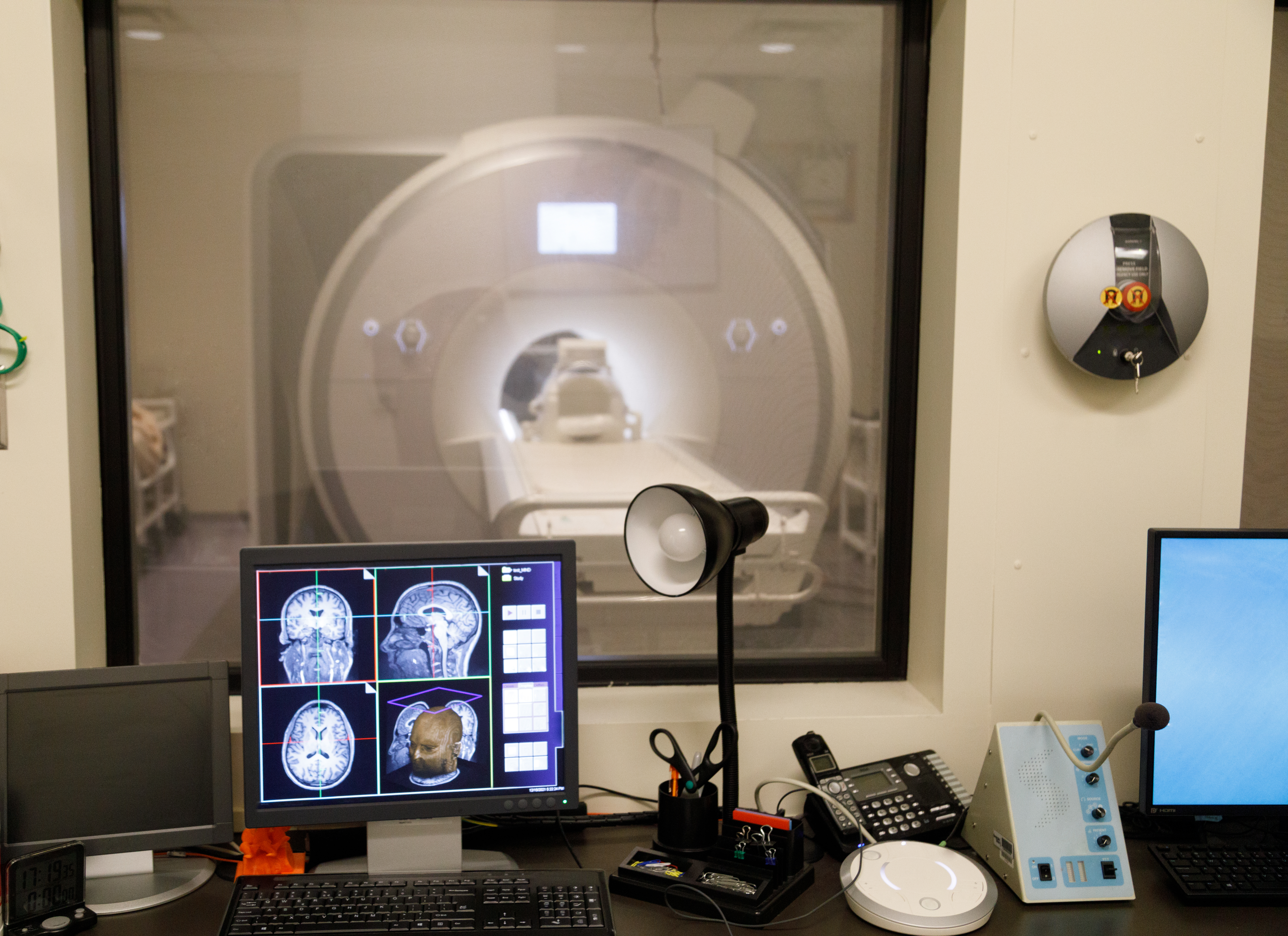
Still, despite the explosion of new techniques and tools for studying the brain, such as functional magnetic resonance imaging (fMRI), many mental health researchers were growing frustrated that their field was not progressing as quickly as they had hoped.
For decades, researchers have studied mental disorders using diagnoses based on the Diagnostic and Statistical Manual of Mental Disorders (DSM)—a handbook that lists the symptoms of mental disorders and the criteria for diagnosing a person with a disorder. But, among many researchers, suspicion was growing that the system used to diagnose mental disorders may not be the best way to study them.
“There are many benefits to using the DSM in medical settings—it provides reliability and ease of diagnosis. It also provides a clear-cut diagnosis for patients, which can be necessary to request insurance-based coverage of healthcare or job- or school-based accommodations,” said Bruce Cuthbert, Ph.D., who headed the workgroup that developed NIMH’s Research Domain Criteria Initiative. “However, when used in research, this approach is not always ideal.”
Researchers would often test people with a specific diagnosed DSM disorder against those with a different disorder or with no disorder and see how the groups differed. However, different mental disorders can have similar symptoms, and people can be diagnosed with several different disorders simultaneously. In addition, a diagnosis using the DSM is all or none—patients either qualify for the disorder based on their number of symptoms, or they don’t. This black-and-white approach means there may be people who experience symptoms of a mental disorder but just miss the cutoff for diagnosis.
Dr. Cuthbert, who is now the senior member of the RDoC Unit which orchestrates RDoC work, stated that “Diagnostic systems are based on clinical signs and symptoms, but signs and symptoms can’t really tell us much about what is going on in the brain or the underlying causes of a disorder. With modern neuroscience, we were seeing that information on genetic, pathophysiological, and psychological causes of mental disorders did not line up well with the current diagnostic disorder categories, suggesting that there were central processes that relate to mental disorders that were not being reflected in DMS-based research.”
Road to evolution
Concerned about the limits of using the DSM for research, Dr. Cuthbert, a professor of clinical psychology at the University of Minnesota at the time, approached Dr. Thomas Insel (then NIMH director) during a conference in the autumn of 2008. Dr. Cuthbert recalled saying, “I think it’s really important that we start looking at dimensions of functions related to mental disorders such as fear, working memory, and reward systems because we know that these dimensions cut across various disorders. I think NIMH really needs to think about mental disorders in this new way.”
Dr. Cuthbert didn’t know it then, but he was suggesting something similar to ideas that NIMH was considering. Just months earlier, Dr. Insel had spearheaded the inclusion of a goal in NIMH’s 2008 Strategic Plan for Research to “develop, for research purposes, new ways of classifying mental disorders based on dimensions of observable behavior and neurobiological measures.”
Unaware of the new strategic goal, Dr. Cuthbert was surprised when Dr. Insel's senior advisor, Marlene Guzman, called a few weeks later to ask if he’d be interested in taking a sabbatical to help lead this new effort. Dr. Cuthbert soon transitioned into a full-time NIMH employee, joining the Institute at an exciting time to lead the development of what became known as the Research Domain Criteria (RDoC) Framework. The effort began in 2009 with the creation of an internal working group of interdisciplinary NIMH staff who identified core functional areas that could be used as examples of what research using this new conceptual framework looked like.
The workgroup members conceived a bold change in how investigators studied mental disorders.
“We wanted researchers to transition from looking at mental disorders as all or none diagnoses based on groups of symptoms. Instead, we wanted to encourage researchers to understand how basic core functions of the brain—like fear processing and reward processing—work at a biological and behavioral level and how these core functions contribute to mental disorders,” said Dr. Cuthbert.
This approach would incorporate biological and behavioral measures of mental disorders and examine processes that cut across and apply to all mental disorders. From Dr. Cuthbert’s standpoint, this could help remedy some of the frustrations mental health researchers were experiencing.
Around the same time the workgroup was sharing its plans and organizing the first steps, Sarah Morris, Ph.D., was a researcher focusing on schizophrenia at the University of Maryland School of Medicine in Baltimore. When she first read these papers, she wondered what this new approach would mean for her research, her grants, and her lab.
She also remembered feeling that this new approach reflected what she was seeing in her data.
“When I grouped my participants by those with and without schizophrenia, there was a lot of overlap, and there was a lot of variability across the board, and so it felt like RDoC provided the pathway forward to dissect that and sort it out,” said Dr. Morris.
Later that year, Dr. Morris joined NIMH and the RDoC workgroup, saying, “I was bumping up against a wall every day in my own work and in the data in front of me. And the idea that someone would give the field permission to try something new—that was super exciting.”
The five original RDoC domains of functioning were introduced to the broader scientific community in a series of articles published in 2010 .
To establish the new framework, the RDoC workgroup (including Drs. Cuthbert and Morris) began a series of workshops in 2011 to collect feedback from experts in various areas from the larger scientific community. Five workshops were held over the next two years, each with a different broad domain of functioning based upon prior basic behavioral neuroscience. The five domains were called:
- Negative valence (which included processes related to things like fear, threat, and loss)
- Positive valence (which included processes related to working for rewards and appreciating rewards)
- Cognitive processes
- Social processes
- Arousal and regulation processes (including arousal systems for the body and sleep).
At each workshop, experts defined several specific functions, termed constructs, that fell within the domain of interest. For instance, constructs in the cognitive processes domain included attention, memory, cognitive control, and others.
The result of these feedback sessions was a framework that described mental disorders as the interaction between different functional processes—processes that could occur on a continuum from normal to abnormal. Researchers could measure these functional processes in a variety of complementary ways—for example, by looking at genes associated with these processes, the brain circuits that implement these processes, tests or observations of behaviors that represent these functional processes, and what patients report about their concerns. Also included in the framework was an understanding that functional processes associated with mental disorders are impacted and altered by the environment and a person’s developmental stage.
Preserving momentum
Over time, the Framework continued evolving and adapting to the changing science. In 2018, a sixth functional area called sensorimotor processes was added to the Framework, and in 2019, a workshop was held to better incorporate developmental and environmental processes into the framework.;
Since its creation, the use of RDoC principles in mental health research has spread across the U.S. and the rest of the world. For example, the Psychiatric Ratings using Intermediate Stratified Markers project (PRISM) , which receives funding from the European Union’s Innovative Medicines Initiative, is seeking to link biological markers of social withdrawal with clinical diagnoses using RDoC-style principles. Similarly, the Roadmap for Mental Health Research in Europe (ROAMER) project by the European Commission sought to integrate mental health research across Europe using principles similar to those in the RDoC Framework.;
Dr. Morris, who has acceded to the Head of the RDoC Unit, commented: “The fact that investigators and science funders outside the United States are also pursuing similar approaches gives me confidence that we’ve been on the right pathway. I just think that this has got to be how nature works and that we are in better alignment with the basic fundamental processes that are of interest to understanding mental disorders.”
The RDoC framework will continue to adapt and change with emerging science to remain relevant as a resource for researchers now and in the future. For instance, NIMH continues to work toward the development and optimization of tools to assess RDoC constructs and supports data-driven efforts to measure function within and across domains.
“For the millions of people impacted by mental disorders, research means hope. The RDoC framework helps us study mental disorders in a different way and has already driven considerable change in the field over the past decade,” said Joshua A. Gordon, M.D., Ph.D., director of NIMH. “We hope this and other innovative approaches will continue to accelerate research progress, paving the way for prevention, recovery, and cure.”
Publications
Cuthbert, B. N., & Insel, T. R. (2013). Toward the future of psychiatric diagnosis: The seven pillars of RDoC. BMC Medicine , 11 , 126. https://doi.org/10.1186/1741-7015-11-126
Cuthbert B. N. (2014). Translating intermediate phenotypes to psychopathology: The NIMH Research Domain Criteria. Psychophysiology , 51 (12), 1205–1206. https://doi.org/10.1111/psyp.12342
Cuthbert, B., & Insel, T. (2010). The data of diagnosis: New approaches to psychiatric classification. Psychiatry , 73 (4), 311–314. https://doi.org/10.1521/psyc.2010.73.4.311
Cuthbert, B. N., & Kozak, M. J. (2013). Constructing constructs for psychopathology: The NIMH research domain criteria. Journal of Abnormal Psychology , 122 (3), 928–937. https://doi.org/10.1037/a0034028
Garvey, M. A., & Cuthbert, B. N. (2017). Developing a motor systems domain for the NIMH RDoC program. Schizophrenia Bulletin , 43 (5), 935–936. https://doi.org/10.1093/schbul/sbx095
Insel, T. (2013). Transforming diagnosis . http://www.nimh.nih.gov/about/director/2013/transforming-diagnosis.shtml
Kozak, M. J., & Cuthbert, B. N. (2016). The NIMH Research Domain Criteria initiative: Background, issues, and pragmatics. Psychophysiology , 53 (3), 286–297. https://doi.org/10.1111/psyp.12518
Morris, S. E., & Cuthbert, B. N. (2012). Research Domain Criteria: Cognitive systems, neural circuits, and dimensions of behavior. Dialogues in Clinical Neuroscience , 14 (1), 29–37. https://doi.org/10.31887/DCNS.2012.14.1/smorris
Sanislow, C. A., Pine, D. S., Quinn, K. J., Kozak, M. J., Garvey, M. A., Heinssen, R. K., Wang, P. S., & Cuthbert, B. N. (2010). Developing constructs for psychopathology research: Research domain criteria. Journal of Abnormal Psychology , 119 (4), 631–639. https://doi.org/10.1037/a0020909
- Presidential Proclamation 6158 (The Decade of the Brain)
- Research Domain Criteria Initiative website
- Psychiatric Ratings using Intermediate Stratified Markers (PRISM)
- Roadmap for Mental Health Research in Europe (ROAMER)
110 Depression Research Topics To Deal With
Table of Contents
Depressive disorder also known as depression is a common mental disorder that is different from the mood changes that an individual experiences in everyday life. It is characterized by a depressed mood, lack of interest in activities, or loss of pleasure for a long time. Due to various reasons, currently, a lot of people suffer from depression and this in turn has an impact on the social, health, and psychological well-being of a person. So, by working on interesting depression research topics, you can analyze the different aspects of mental illness and generate best the strategies and solutions to handle the issue.
In case, you are unsure what depression research topic to choose for your sociology or psychology thesis or dissertation, take a look at this blog post. Here, we have recommended 110 exclusive depression research questions. Also, we have shared some tips for selecting a good topic for your depression research paper.
Choosing a Good Depression Research Topic

Identifying a topic is the first and most important step in the research paper preparation process. So, to compose an outstanding research paper, you should make sure to pick a unique topic. When it comes to preparing a research paper on depression, you can choose a topic by following these tips.
- Find out a topic related to depression from your area of interest. For instance, you can choose to write about depression associated with fields such as psychology, sociology, law, health, etc.
- Select a topic that is convenient to conduct research within the deadline.
- Give preference to a research topic that contains several credible sources of references.
- Avoid picking a topic that is too broad or too narrow. Divide them into subtopics, if it is too wide to concentrate on.
- Never choose popular depression research topics that are frequently discussed. Go with a topic that has a unique thesis statement .
- Confirm the topic only if it satisfies the research paper writing guidelines of your university.
List of Depression Research Topics and Ideas
If you are confused about what topic to choose for your depression research paper, explore the list published below and pick any topic of your interest. In the list, we have analyzed and presented 110 excellent depression research paper topics and ideas to focus on.
Simple Depression Research Topics
- Explain how depression affects an individual’s quality of life.
- Examine why it is hard to overcome depression.
- Analyze how depression affects the brain’s function and chemistry.
- Discuss the major types of depression.
- Explain the difference between clinical depression and normal depression.
- Examine the role played by genetics in depression development.
- Explain how depression affects people of different age groups.
- Analyze the link between depression and other mental health disorders.
- Explain how major depression is different from bipolar depression.
- Examine how depression affects the teenage generation.
- Explain how depression can be diagnosed.
- Focus on depression in autistic children.
- Examine the health problems associated with depression.
- Analyze the effects of depression on school activities.
- Discuss the biopsychosocial model of depression
- Examine the effects of alcohol abuse on depression.
- Discuss the Limbic Cortical Model for diagnosing depression.
- Investigate the link between hypogonadism and depression.
- Analyze the differences between depression and dementia.
- Analyze the diathesis-stress model of depression
Depression Research Topics for Sociology Students
- Write about depression in adolescent females.
- Discuss the reasons why stress and depression should be taken seriously.
- Examine the impact of maternal depression on children.
- Prepare a research paper on mood disorders related to depression.
- Examine how depression affects the self-esteem of teens.
- Analyze the correlation between art therapy and depression.
- Write about the cognitive treatment of depression.
- Focus on the physical activity of kids with depression.
- Explain how music therapy affects depression.
- Explore how using smartphones influences depression and anxiety.
- Analyze the effects of depression on social interaction.
- Write about the depression among LGBTQ youth.
- Examine the link between weed and depression in young adults.
- Prepare a research paper on post-traumatic stress disorder and depression.
- Discuss the relationship between perfectionism and depression in young adults.
Depression Research Topics for Psychology Students
- Write about personality psychology and depression.
- Prepare a research paper on cognitive behavior and depression in adolescents.
- Analyze the psychological and emotional condition of suicide and depression.
- Discuss the psychological complications of mental illness, anxiety, and depression.
- Examine the psychology of depression among college students.
- Take a look at depression associated with cognitive dysfunction.
- Discuss the fundamental characteristics of anxiety disorder.
- Write about early-life stress and behavioral outcomes.
- Discuss the psychological approaches for treating depression.
- Explain the symptoms and treatment of major depressive disorder.
- Write about abnormal psychology in anxiety and depression cases.
- Prepare a psychology assessment report of a patient who suffers from depression.
- Take a look at aggression and depression in psychology.
- Assess the different psychological counseling methods for depression.
- Write about depression in older persons.
Also Read: 150+ Unique Psychology Research Topics and Ideas
Best Depression Research Topics on Health Care
- Explain how leading a healthy lifestyle prevents obesity, depression, and heart disease.
- Compare and contrast dementia, depression, and delirium.
- Write about the pharmacological prevention of postnatal depression.
- Discuss how depression and weight change after a kidney transplant.
- Analyze the impact of depression on our health.
- Explain how untreated depression changes the brain over time.
- Examine the reasons why depression is considered a major mental health problem.
- Write about the association of hormonal contraception with depression.
- Discuss a person’s functioning level and clinical symptoms and behaviors that reflect bipolar depression.
- Examine the link between cervical cancer treatment and the onset of depression.
Good Depression Research Ideas
- Discuss the various types of training in managing the symptoms of depression.
- Write about the depression caused by hormonal imbalance.
- Analyze the effect of divorce on the mental health of children.
- Prepare a research paper on workplace depression.
- Examine the consequences of postpartum depression.
- Analyze the depression associated with childhood trauma.
- Explain the depression among minority groups.
- Discuss depression management in adolescents.
- Explain the strengths and limitations of group therapy in psychology.
- Explain how to measure an individual’s level of depression.
Interesting Depression Research Questions
- Write about emotion regulation therapy for generalized anxiety disorder.
- Prepare a literature review on depression.
- Focus on the depression of human services workers.
- Write about depression disassembling and treatment.
- Explain the role of family in depression treatment.
- Prepare a research paper on child abuse and depression.
- Explain how to treat depression caused by bullying.
- Suggest some approaches to treat depression.
- Discuss the symptoms of dysthymic disorder depression therapy.
- Investigate polysubstance abuse among adolescent males with depression.
- Explain humanistic therapy for depression.
- Write about evidence-based screening for depression in acute care.
- Prepare a research paper on yoga therapy and depression symptoms in adults.
- Focus on cognitive behavioral therapy and its application for psychotic depression.
- Write about cognitive behavioral therapy for depression and anxiety attacks.
Unique Depression Research Paper Topics
- Write about metacognitive therapy for depression in adults.
- Analyze the effect of mindfulness-based cognitive therapy on depression.
- Prepare a research paper on depression and anxiety among adult children of alcoholics.
- Write about electroconvulsive therapy for severe depression.
- Explain how flower therapy helps to treat people with depression.
- Discuss the antidepressant treatment for depression.
- Write about talk therapy for depression.
- Examine the risk factors of adult depression.
- Analyze how music therapy improves depression among older adults.
- Write about life after depression with hypno psychotherapy.
- Explore the link between adult attachment classification and symptoms of depression.
- Discuss the new therapy technique for depression.
- Explain how massage therapy reduces pain, depression, and anxiety in hand osteoarthritis patients.
- Write about oriental therapy for depression.
- Examine the link between depression and memory loss.
Intriguing Depression Research Paper Ideas
- Explain the effects of emotional abuse on depression.
- Write about social anxiety and its effects on depression.
- Examine the changes in brain activity in people suffering from depression.
- Write about addiction problems associated with anti-depressive medication.
- Discuss the sleep problems caused by depression.
- Compare and contrast depression and cyclothymic disorder.
- Write about medications that cause depression among the elderly
- Explain the effects of medicinal marijuana on depression
- Focus on the emotions that trigger depression and anxiety attacks
- Analyze catatonic depression.
Also Read: 135 Unique Abnormal Psychology Essay Topics
Wrapping Up
From the above-suggested list, choose any depression research title of your choice and compose a brilliant academic paper. In case, you need help with writing a depression research paper, call us immediately.
At greatassignmenthelp.com, we have talented and experienced assignment helpers from different fields such as psychology, sociology, medicine, and more. By using their expertise, our scholarly writers will assist you in conducting research and composing a plagiarism-free thesis on any depression research topics. Furthermore, getting our assignment help online will aid you in submitting flawless depression research papers on time as per your needs.
Related Post

100 Best Explanatory Essay Topics and Ideas

75 Latest Special Education Research Topics and Ideas

200 Impressive Business Essay Topics
About author.
Jacob Smith
Jacob Smith guides students with writing research paper topics and theses at greatassignmenthelp.com. Read about the author from this page
https://www.greatassignmenthelp.com/
Leave a Reply Cancel reply
Your email address will not be published. Required fields are marked *
- Featured Posts
175 Unique Bioethics Topics To Consider for Academic Paper
Apa vs. mla: know the major differences between the citation styles, top 155 java project ideas for beginners and experts, 80 fascinating political cartoon ideas to deal with, 200 best process essay topics and ideas, 140 best health essay topics and ideas, 110 excellent romeo and juliet essay topics, 170 unique food research paper topics and ideas, get help instantly.
Raise Your Grades with Great Assignment Help
- Search This Site All UCSD Sites Faculty/Staff Search Term
- Contact & Directions
- Climate Statement
- Cognitive Behavioral Neuroscience
- Cognitive Psychology
- Developmental Psychology
- Social Psychology
- Adjunct Faculty
- Non-Senate Instructors
- Researchers
- Psychology Grads
- Affiliated Grads
- New and Prospective Students
- Honors Program
- Experiential Learning
- Programs & Events
- Psi Chi / Psychology Club
- Prospective PhD Students
- Current PhD Students
- Area Brown Bags
- Colloquium Series
- Anderson Distinguished Lecture Series
- Speaker Videos
- Undergraduate Program
- Academic and Writing Resources
Writing Research Papers
- Formatting Research Papers
Research papers written in APA style should follow the formatting rules specified in the Publication Manual of the American Psychological Association . Most research papers that are written for psychology courses at UCSD, including the B.S. Degree Research Paper and the Honors Thesis, have to follow APA format. Here we discuss the formatting of research papers according to APA style.
How to Format a Research Paper in APA Style
For the most accurate and comprehensive information on formatting papers in APA style, we recommend referring directly to the Publication Manual of the American Psychological Association. Reputable online sources (e.g., the official APA Style website and the Purdue University Online Writing Lab’s guide to APA style) are also recommended.
According to the Publication Manual, the major sections and components of APA style research papers should adhere to the following guidelines. Note that how closely these guidelines are followed may vary depending on the course and instructor.
General Formatting Rules
- Papers should have at least 1-in. margins on all sides. 1
- All text should be double spaced . 1
- Times New Roman, 12 point font is preferred. 1
- All lines of text should be flush-left and should not be justified, except where noted in the Manual. 1
- The first line of every paragraph should be indented. Exceptions to the indenting rule are the Abstract, quotations, titles and headings, as well as Tables and Figures. 1
- Pages should be numbered at the top right, with the title page numbered page 1, the Abstract numbered page 2, and the text starting on page 3. 1
- An abbreviated title called the Running Head should be placed at the top of each page, flush-left in uppercase letters. 1
- Two spaces should be used after punctuation marks at the end of each sentence (in other words, there should be two spaces after the period that ends each sentence). 2
Formatting the Title Page
- The title should be typed in the upper half of the title page, centered, and with the first letters of all but minor words capitalized. 3
- The name(s) of the author(s) should be typed below the title and followed with the institutional affiliation(s) of the author(s). 3
- An Author Note should appear below the aforementioned items. The Author Note can have up to four paragraphs. These respectively describe the author(s)’ departmental and institutional affiliation, any changes in affiliation, acknowledgments, and contact information. 3
Formatting the Abstract
- The Abstract typically should not exceed 250 words. 4
- The Abstract should be placed on a separate page, with the label Abstract appearing at the top center of that page and followed by the text of the Abstract. 4
- The Abstract should not be indented. 4
Formatting the Main Body of Text
- The main body of text should begin on a separate page after the Abstract. 5
- It should begin with the Introduction section. 5
- The Introduction section should be titled with the title of the research paper and not the word “Introduction.” The title should appear at the top of the page, centered, and should not be bolded. 5
- The remainder of the text should be flush-left, with each new paragraph indented except where noted above (see General Formatting Rules ). 5
- Each of the subsequent sections of the paper should be prefaced with a heading. APA guidelines specify different heading formats (for more information on Levels of Headings , see below). 5
Formatting References
- The references section should begin on a separate page after the main body of text. 6
- It should begin with the word “References” placed at the top of the page and centered. 6
- All references should be listed in alphabetical order by the last name of the first author of each reference. 6
- All references should be double-spaced and should use a hanging indent format wherein the first line of each reference is flush-left and all subsequent lines of that reference are indented (with that pattern repeating for each reference). 6
- All references should use the appropriate APA reference format (for more information, please see the Citing References section of this website). 6
Levels of Headings in APA Style
As of the sixth edition of the Publication Manual of the American Psychological Association (released in 2010), the five possible levels of heading in APA-formatted manuscripts are: 7
- Level 1: centered, bold, on a separate line, and the first letters of all but minor words capitalized.
- Level 2: flush-left, bold, on a separate line, and the first letters of all but minor words capitalized.
- Level 3: indented, bold, as a paragraph heading (the first part of a paragraph; regular text follows on the same line), and in lowercase letters ending with a period.
- Level 4: indented, bold, italicized, as a paragraph heading (the first part of a paragraph; regular text follows on the same line), and in lowercase letters ending with a period.
- Level 5: indented, not bold, italicized, as a paragraph heading (the first part of a paragraph; regular text follows on the same line), and in lowercase letters ending with a period.
Depending on the structure of your research paper, some or all of the five levels of headings may be used. The headings have a “hierarchical nested structure” where Level 1 is the highest and Level 5 is the lowest. For example, you may have a research paper which uses all five levels of heading as follows:
Downloadable Resources
- How to Write APA Style Research Papers (a comprehensive guide) [ PDF ]
- Tips for Writing APA Style Research Papers (a brief summary) [ PDF ]
- Example APA Style Research Paper (for B.S. Degree – empirical research) [ PDF ]
- Example APA Style Research Paper (for B.S. Degree – literature review) [ PDF ]
Further Resources
How-To Videos
- Writing Research Paper Videos
External Resources
- APA Style Guide from the Purdue University Online Writing Lab (OWL)
- APA Tutorial on the Basics of APA Style
- EasyBib Guide to Writing and Citing in APA Format
- Sample APA Formatted Paper
- Sample APA Formatted Paper with Comments
- Tips for Writing a Paper in APA Style
1 VandenBos, G. R. (Ed). (2010). Publication manual of the American Psychological Association (6th ed.) (pp. 228-229). Washington, DC: American Psychological Association.
2 vandenbos, g. r. (ed). (2010). (pp. 87-88). , 3 vandenbos, g. r. (ed). (2010). (pp. 23-25). , 4 vandenbos, g. r. (ed). (2010). (pp. 25-27)., 5 vandenbos, g. r. (ed). (2010). (pp. 41-49). , 6 vandenbos, g. r. (ed). (2010). (pp. 37-38, 49-51). , 7 vandenbos, g. r. (ed). (2010). (p. 62). .
Back to top
- Research Paper Structure
- Using Databases and Finding References
- What Types of References Are Appropriate?
- Evaluating References and Taking Notes
- Citing References
- Writing a Literature Review
- Writing Process and Revising
- Improving Scientific Writing
- Academic Integrity and Avoiding Plagiarism
- Writing Research Papers Videos

IMAGES
VIDEO
COMMENTS
Recently published articles from subdisciplines of psychology covered by more than 90 APA Journals™ publications. For additional free resources (such as article summaries, podcasts, and more), please visit the Highlights in Psychological Research page. Browse and read free articles from APA Journals across the field of psychology, selected by ...
Topics of Psychology Research Related to Human Cognition. Some of the possible topics you might explore in this area include thinking, language, intelligence, and decision-making. Other ideas might include: Dreams. False memories. Attention. Perception.
Psychological Science, the flagship journal of the Association for Psychological Science, is the highest ranked empirical journal in psychology and is truly a leader in the field. The journal publishes cutting-edge research articles and … | View full journal description. This journal is a member of the Committee on Publication Ethics (COPE).
Component 1: The Title Page. • On the right side of the header, type the first 2-3 words of your full title followed by the page number. This header will appear on every page of you report. • At the top of the page, type flush left the words "Running head:" followed by an abbreviation of your title in all caps.
Remember to follow APA format as you write your paper and include in-text citations for any materials you reference. Make sure to cite any information in the body of your paper in your reference section at the end of your document. Writing a psychology research paper can be intimidating at first, but breaking the process into a series of ...
See all (2,657) Learn more about Research Topics. The most cited journal in its field, exploring psychological sciences - from clinical research to cognitive science, from imaging studies to human factors, and from animal cognition to social psych...
Top 100 in Psychology - 2022. This collection highlights our most downloaded* psychology papers published in 2022. Featuring authors from around the world, these papers showcase valuable research ...
Common Types of Psychology Papers Research psychologists engage in a variety of kinds of writing, including grant proposals, research applications and renewals, review articles, research articles, and textbooks. As a student, you are most likely to be asked to write one of two types of papers, either a report of your own actual
Bayes versus bias in human reasoning. The past 35 years have seen Bayesian models applied to many areas of the cognitive and brain sciences, which suggests that reasoning and decision-making may ...
For more information on writing research papers in APA style, please checking out the following pages. Here you'll find details on multiple aspects of the research paper writing process, ranging from how the paper should be structured to how to write more effectively. Structure and Format - the critical components of each section of an APA ...
Explore the latest full-text research PDFs, articles, conference papers, preprints and more on PSYCHOLOGY. Find methods information, sources, references or conduct a literature review on PSYCHOLOGY.
Special Issue The Use of Artificial Intelligence in Psychological Research. Read the full call. Submission deadline for full papers: 15 th February 2024 Guest editors: Janet Hsiao (University of Hong Kong), Alice O'Toole (University of Texas at Dallas), Elliot Ludvig (University of Warwick)
A complete research paper in APA style that is reporting on experimental research will typically contain a Title page, Abstract, Introduction, Methods, Results, Discussion, and References sections. 1 Many will also contain Figures and Tables and some will have an Appendix or Appendices. These sections are detailed as follows (for a more in ...
Confucianism is a group of proposals for proper socioethical ways of life, providing a foundation to the individual's commitment to sincerity, honesty, and interpersonal harmony. Its impacts are multidimensional in politics,…. Continue reading. Published October 5, 2016. Categorized as Psychology Research Papers.
The Open Psychology Journal is an Open Access online journal, which publishes research articles, reviews, letters, case reports and guest-edited single topic issues in all areas of psychology. Bentham Open ensures speedy peer review process and accepted papers are published within 2 weeks of final acceptance.
Self-compassion refers to being supportive toward oneself when experiencing suffering or pain—be it caused by personal mistakes and inadequacies or external life challenges. This review presents my theoretical model of self-compassion as comprised of six different elements: increased self-kindness, common humanity, and mindfulness as well as reduced self-judgment, isolation, and ...
At a Glance. Writing a great introduction can be a great foundation for the rest of your psychology paper. To create a strong intro: Research your topic. Outline your paper. Introduce your topic. Summarize the previous research. Present your hypothesis or main argument.
Writing the Experimental Report: Methods, Results, and Discussion. Tables, Appendices, Footnotes and Endnotes. References and Sources for More Information. APA Sample Paper: Experimental Psychology. Style Guide Overview MLA Guide APA Guide Chicago Guide OWL Exercises. Purdue OWL. Subject-Specific Writing.
Identify and define the topic that you will be reviewing. 2. Conduct a literature search. 3. Read through the research that you have found and take notes. 4. Organize your notes and thoughts; create an outline. 5. Write the literature review itself and edit and revise as needed.
Psychology research is an exciting and competitive study area, making it the perfect choice for projects or papers. Once you uncover the psychology research topic that tickles your fancy, it's time to collect the needed data and look for trends and insights. That's where user-friendly research software like Dovetail comes in.
Psychology Research Paper. This sample psychology research paper features: 6000 words (approx. 20 pages), an outline, and a bibliography with 32 sources. Browse other research paper examples for more inspiration. If you need a thorough research paper written according to all the academic standards, you can always turn to our experienced writers ...
President George H. W. Bush proclaimed the 1990s "The Decade of the Brain ," urging the National Institutes of Health, the National Institute of Mental Health (NIMH), and others to raise awareness about the benefits of brain research. "Over the years, our understanding of the brain—how it works, what goes wrong when it is injured or diseased—has increased dramatically.
Prepare a research paper on post-traumatic stress disorder and depression. Discuss the relationship between perfectionism and depression in young adults. Depression Research Topics for Psychology Students. Write about personality psychology and depression. Prepare a research paper on cognitive behavior and depression in adolescents.
Formatting Research Papers. Research papers written in APA style should follow the formatting rules specified in the Publication Manual of the American Psychological Association.. Most research papers that are written for psychology courses at UCSD, including the B.S. Degree Research Paper and the Honors Thesis, have to follow APA format.
Psychology Research Paper Topics: Race Relations and Discrimination Since we have seen in recent news, there has been an increasing amount of discrimination in today's society. Whether it is based on age, disability, religious beliefs, etc, corretor de portugues online some individuals don't have any problem discriminating against other people.